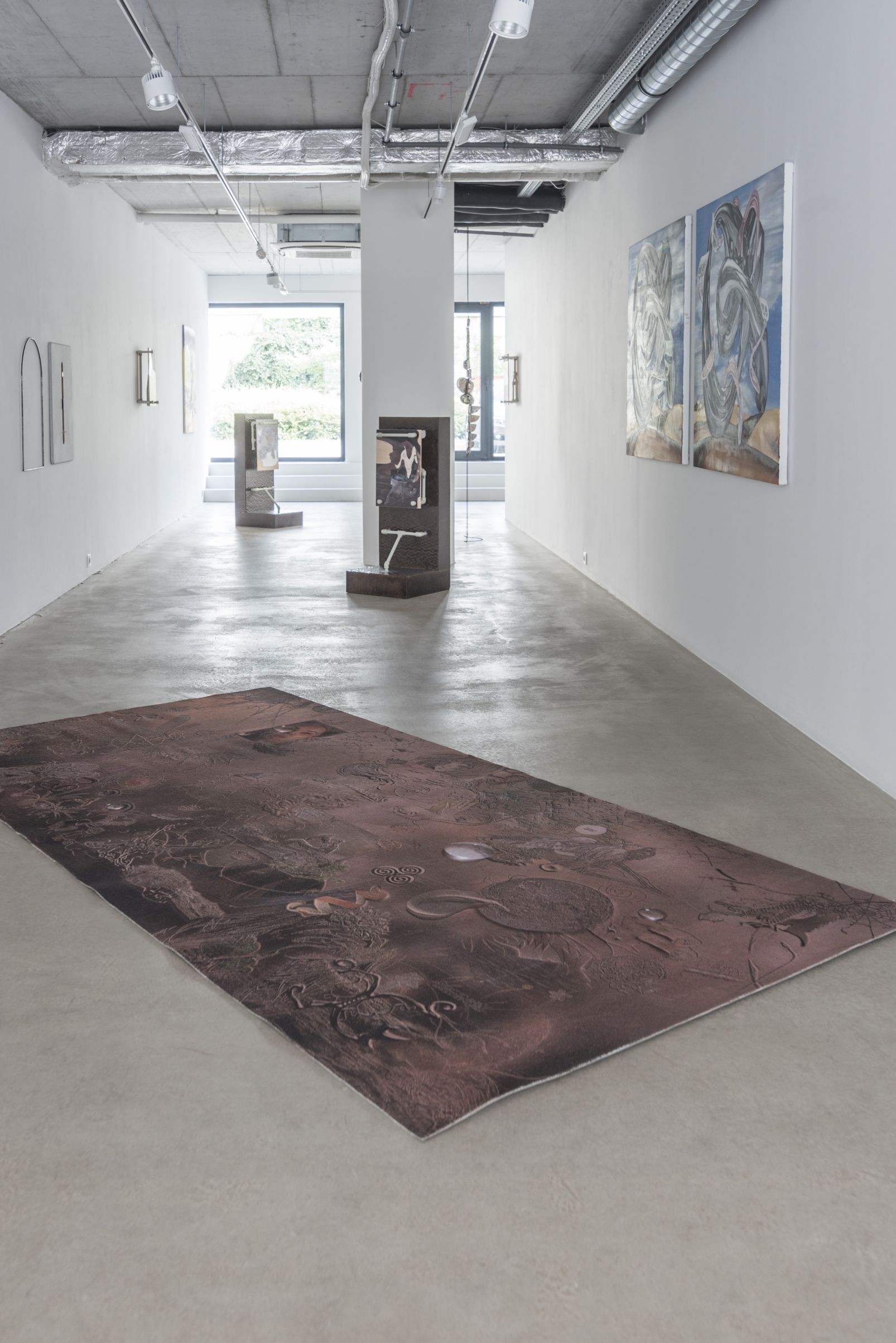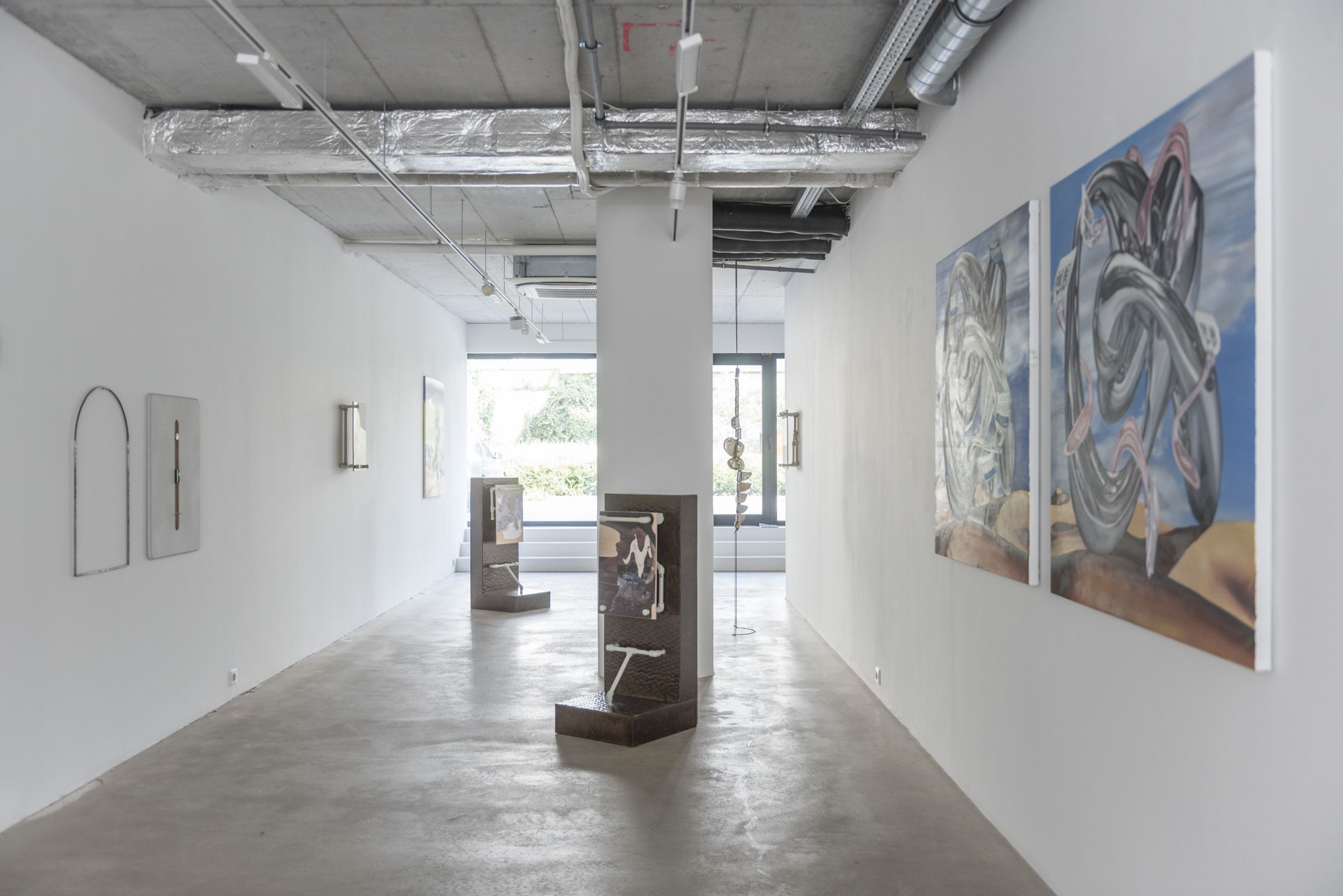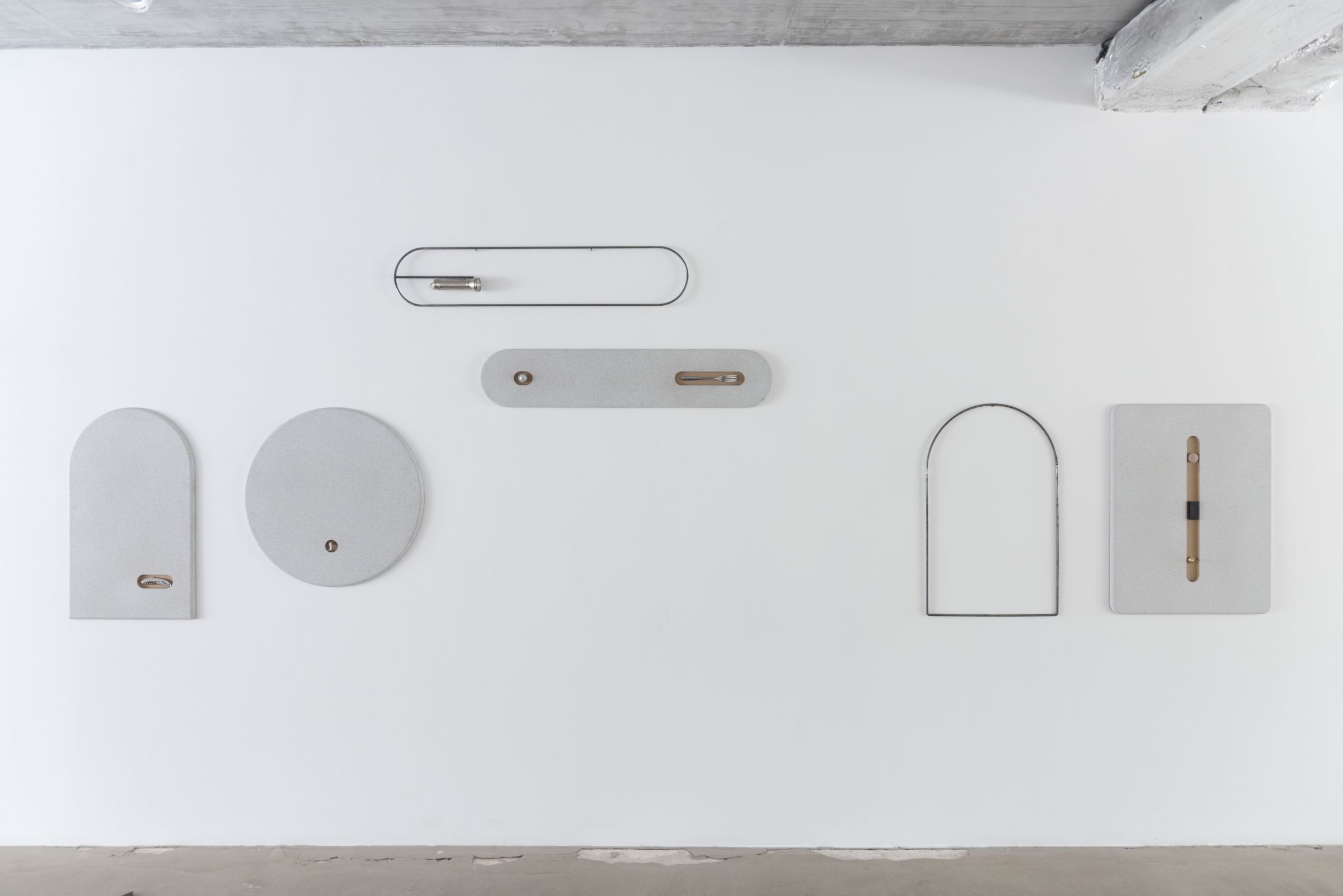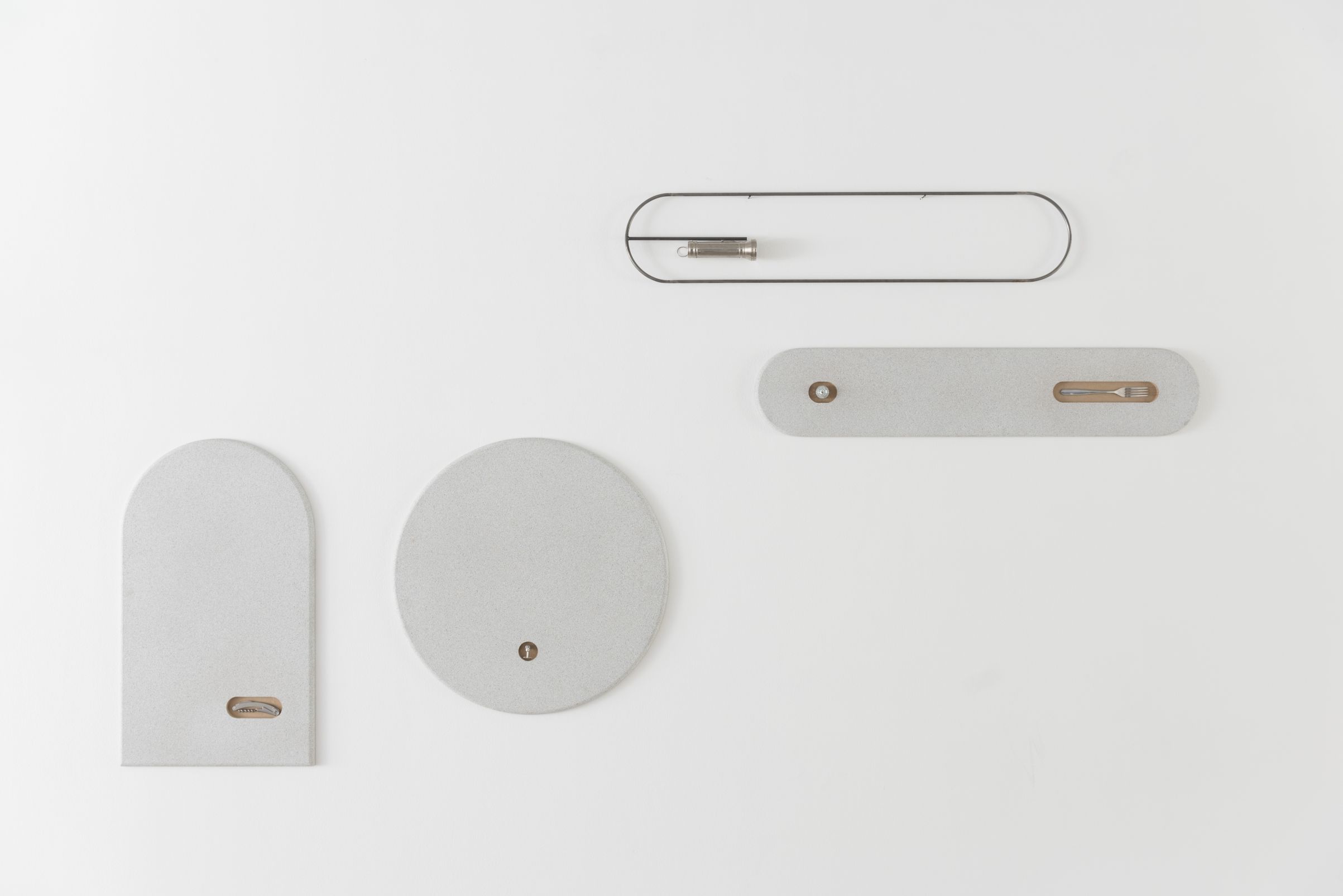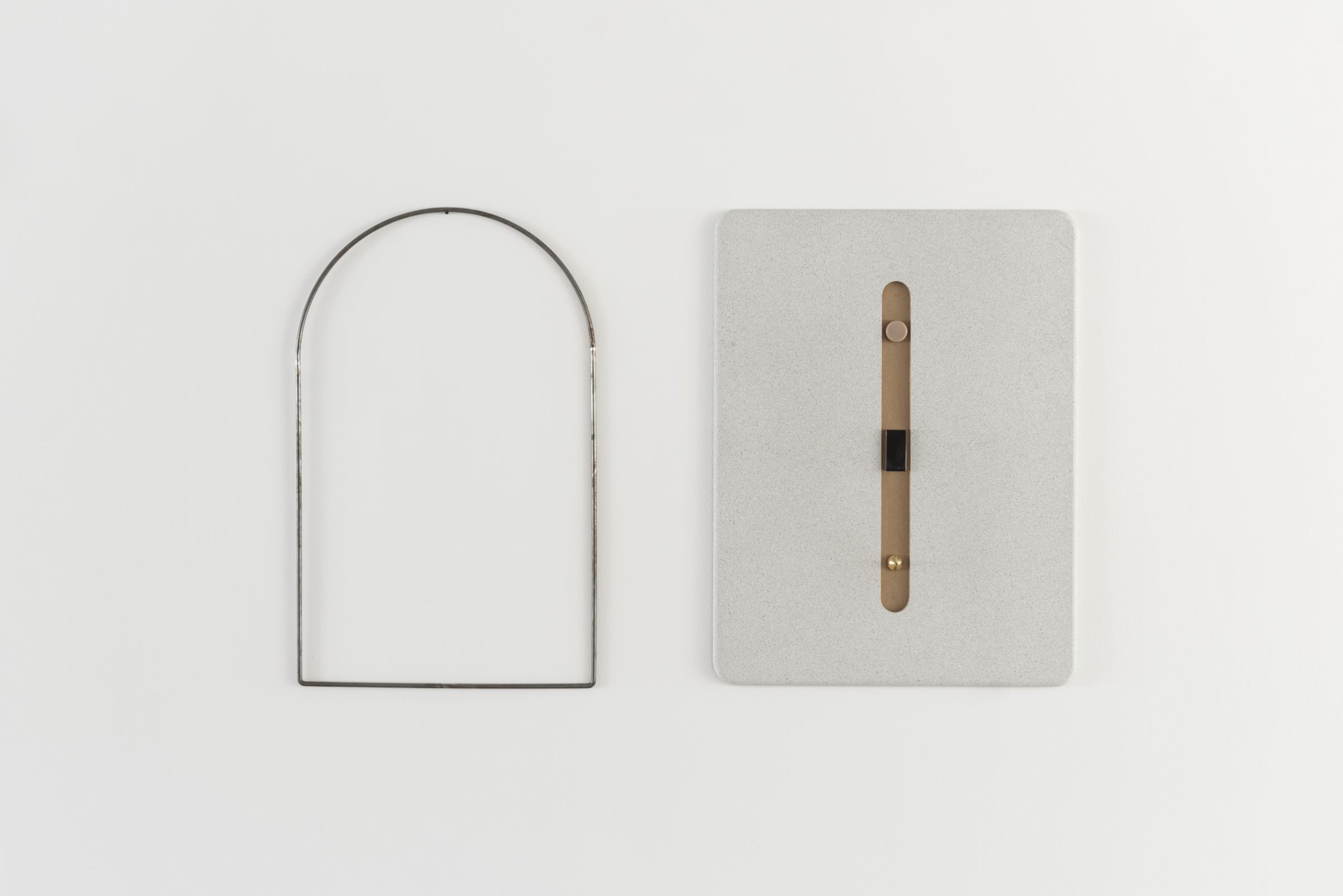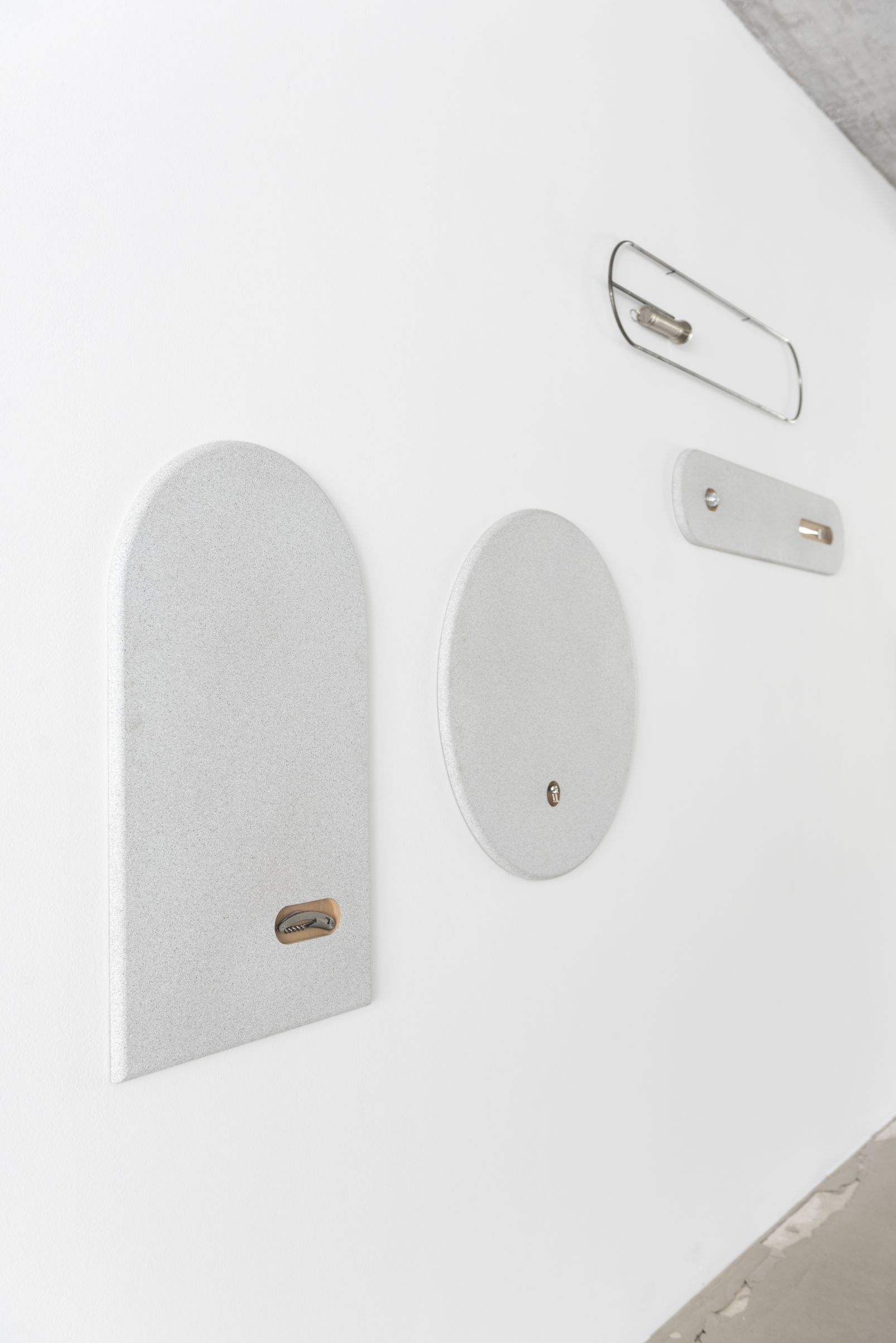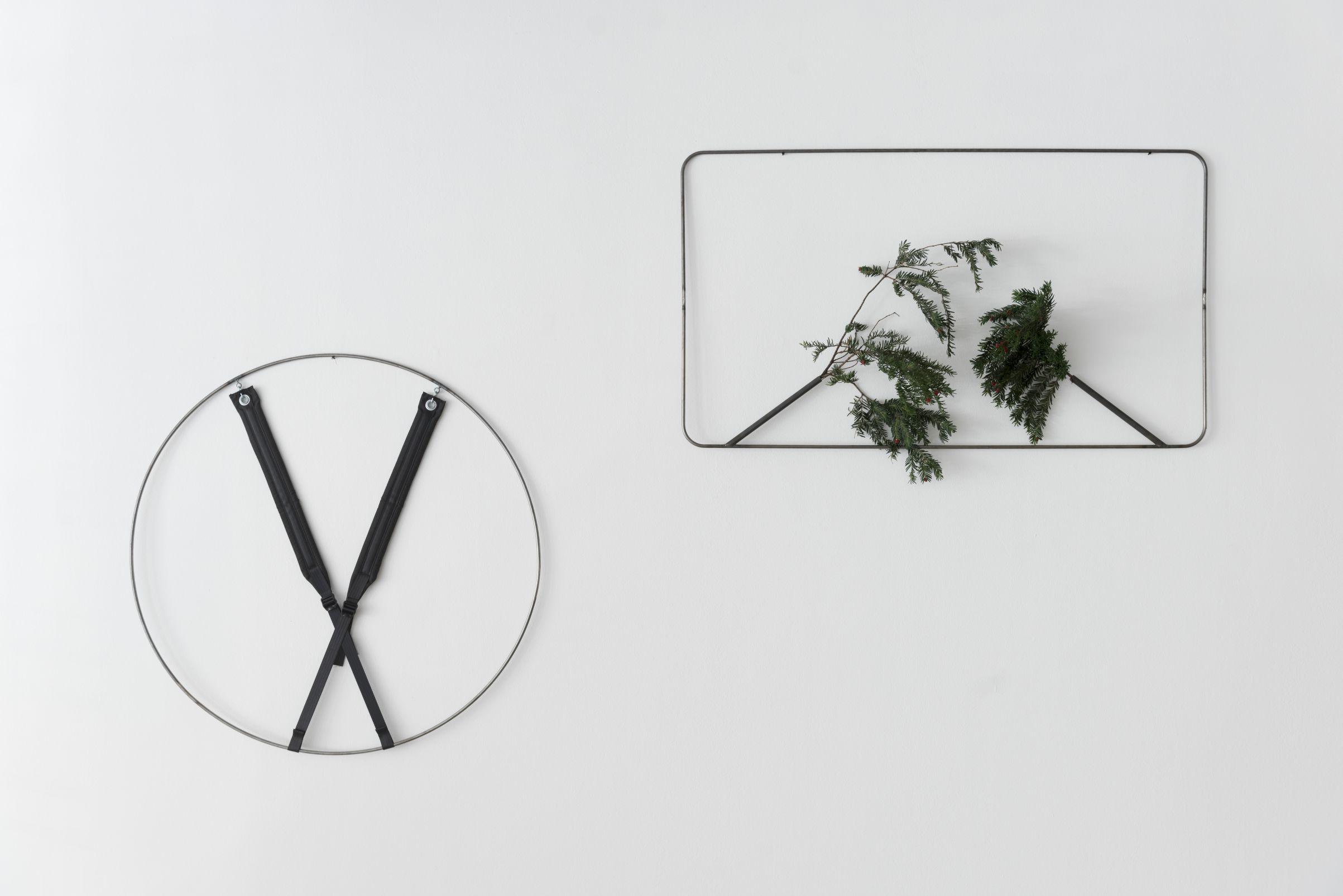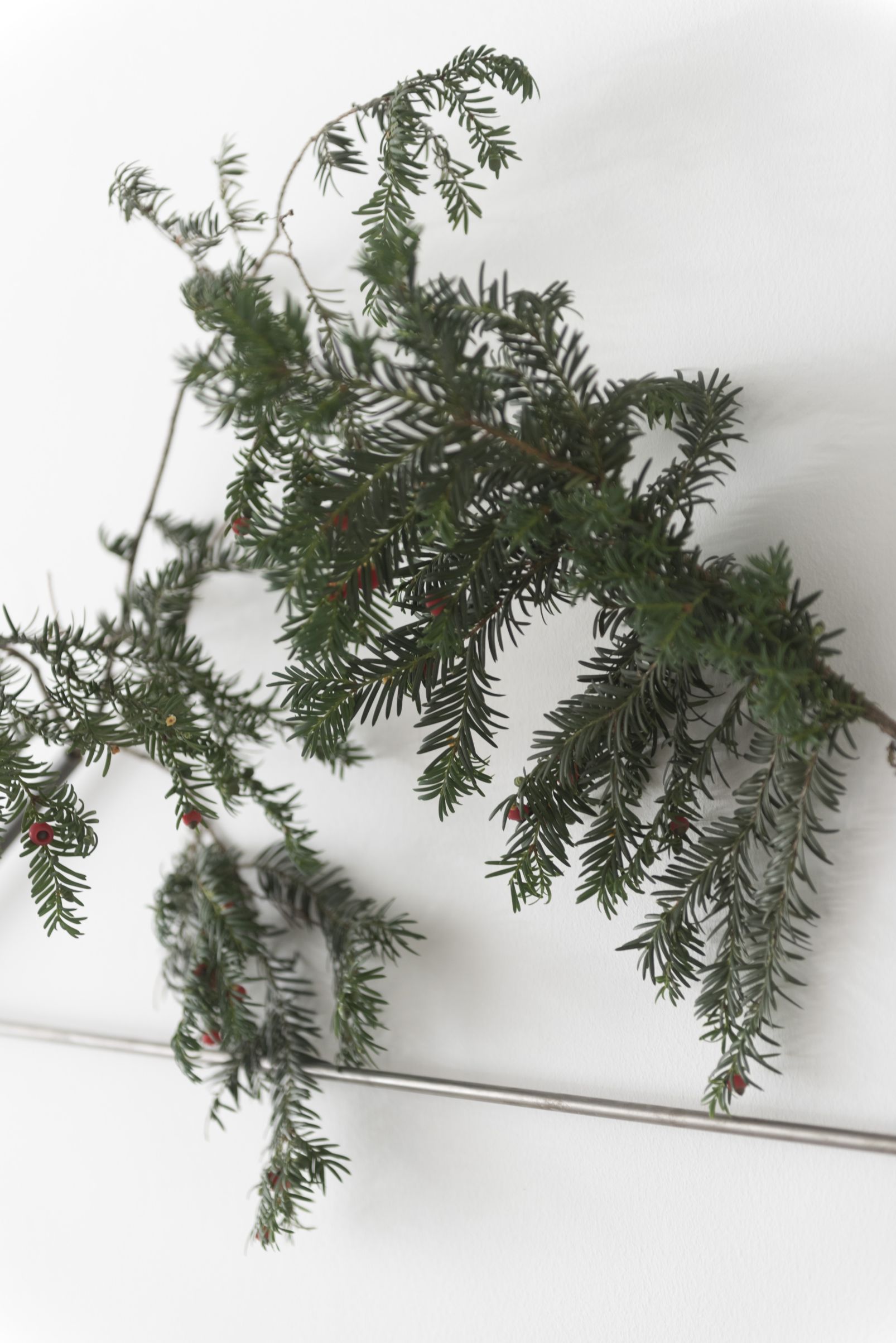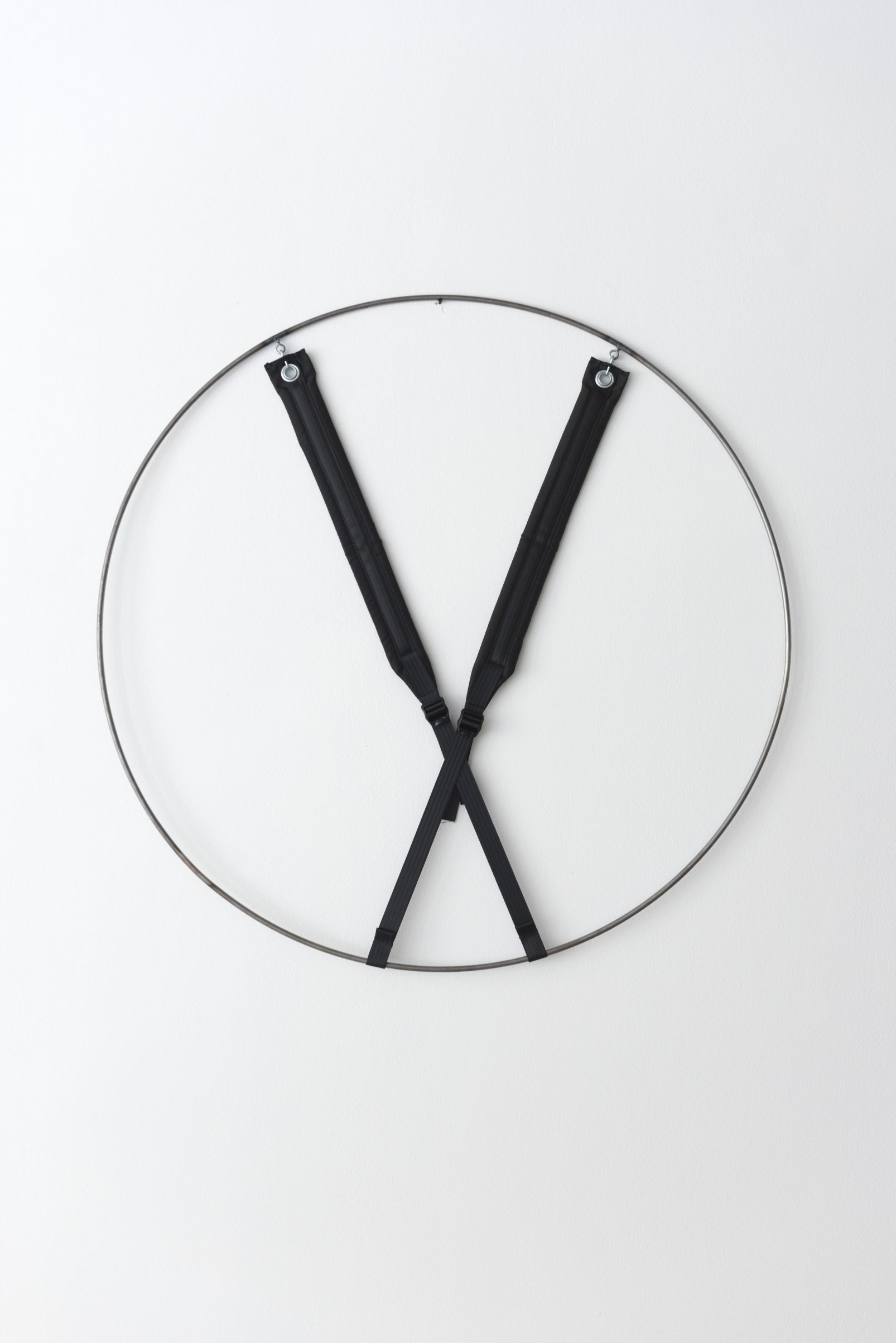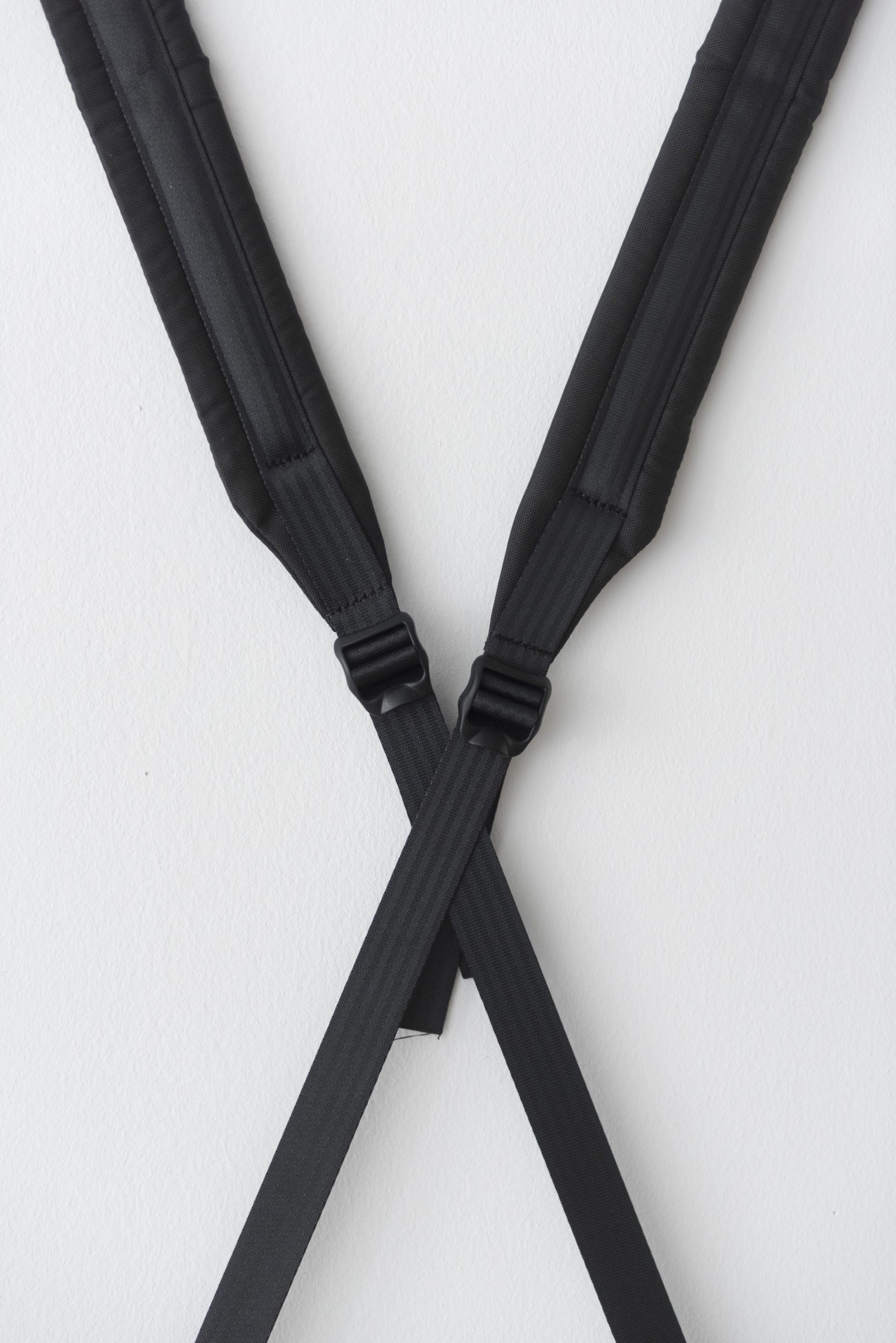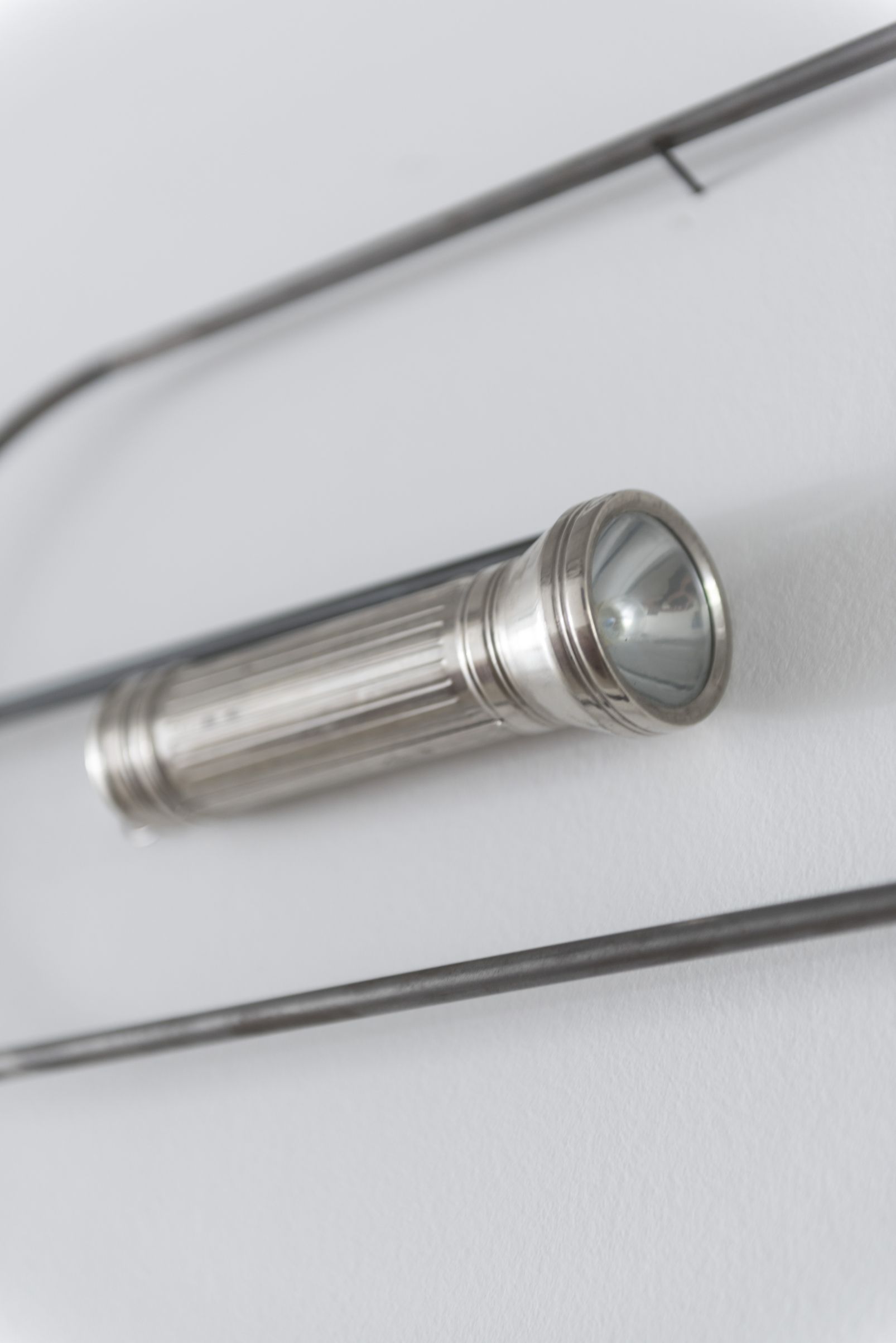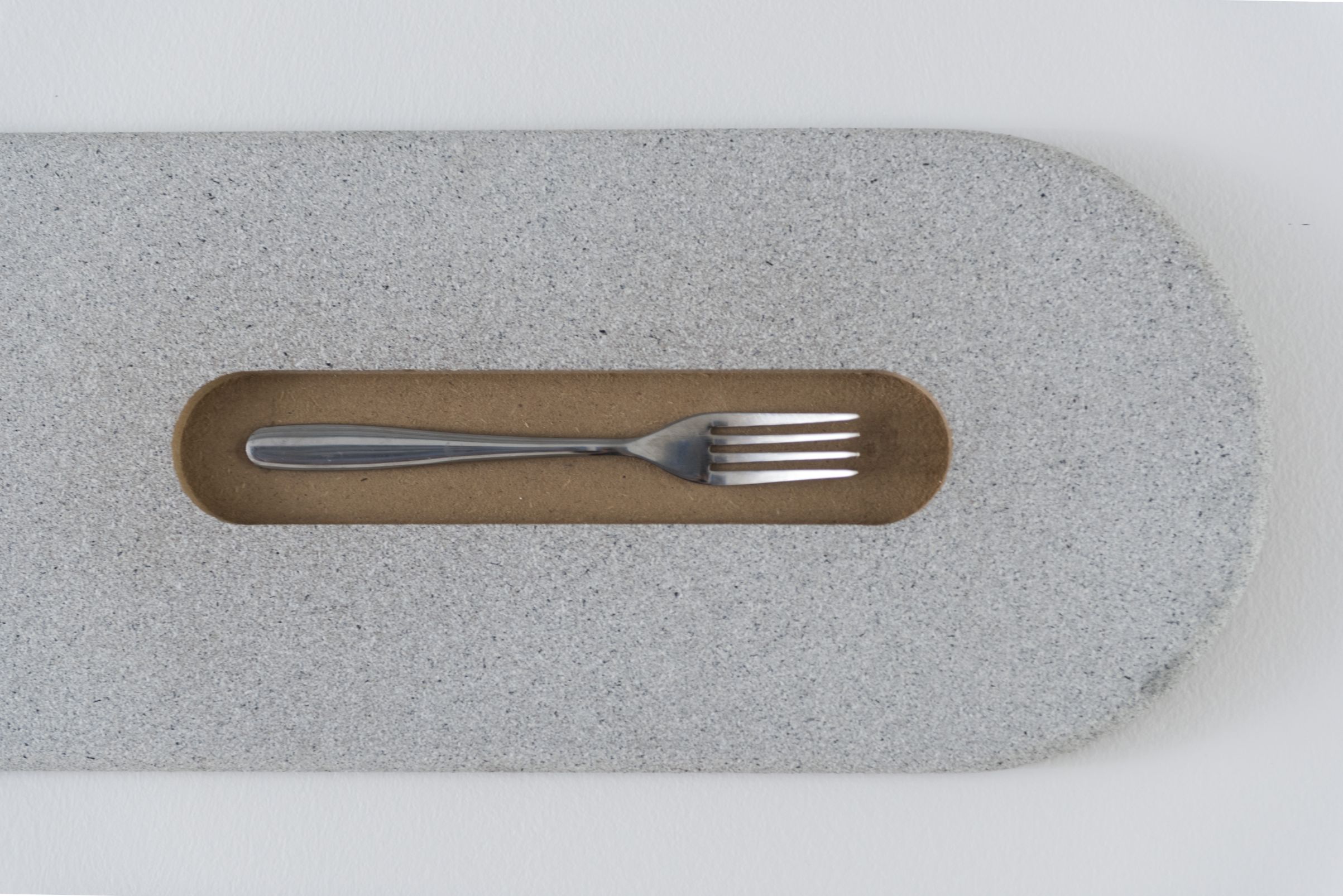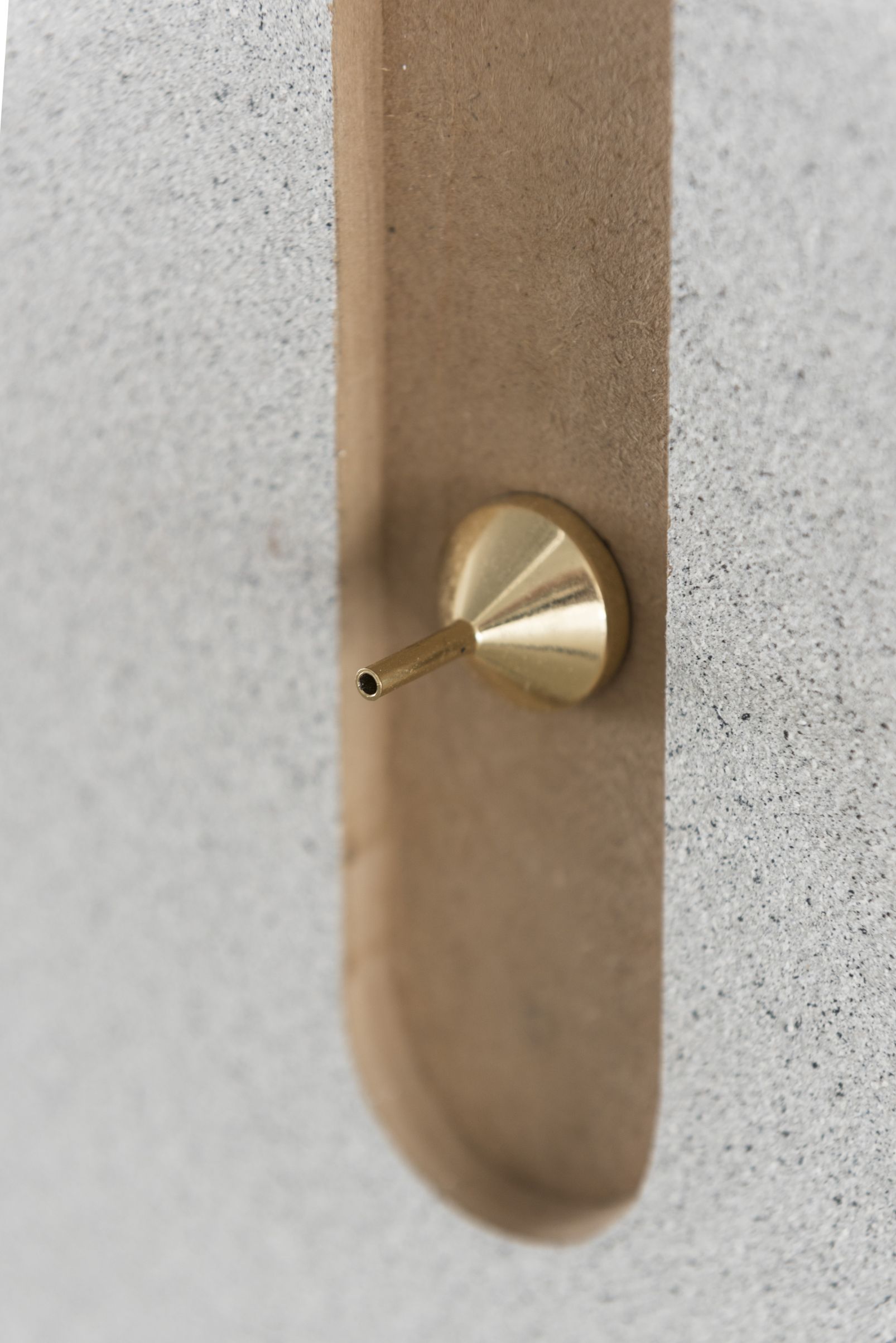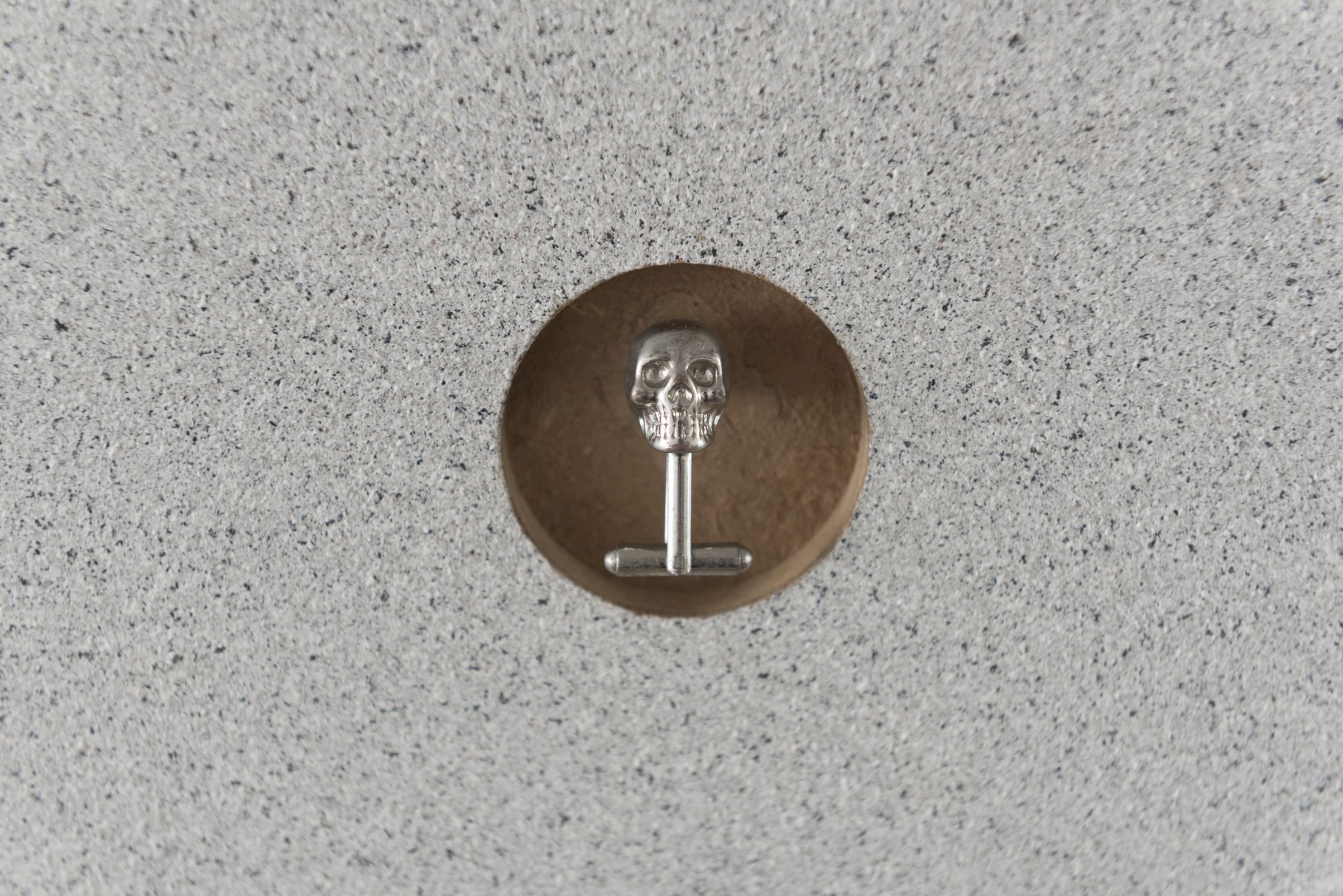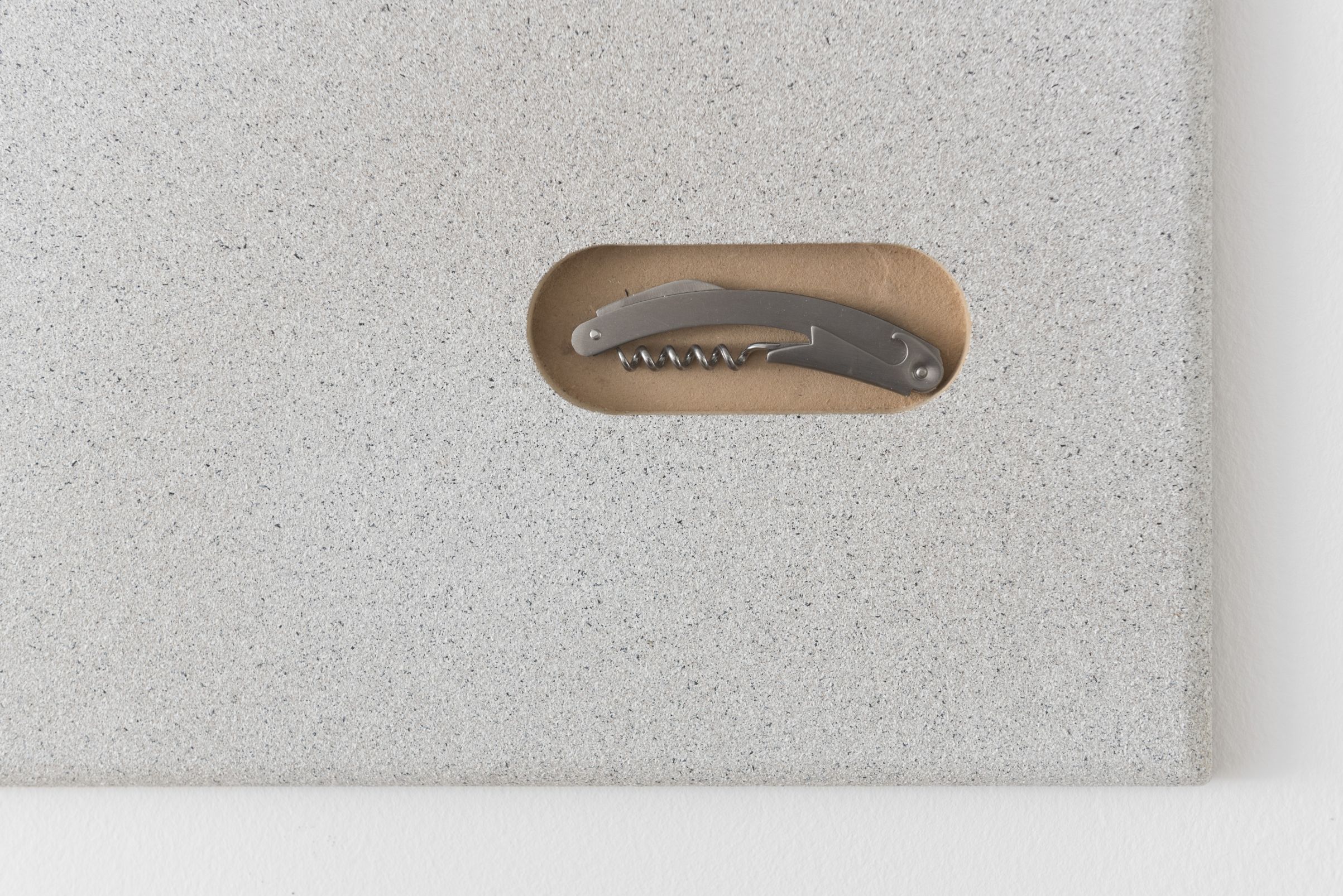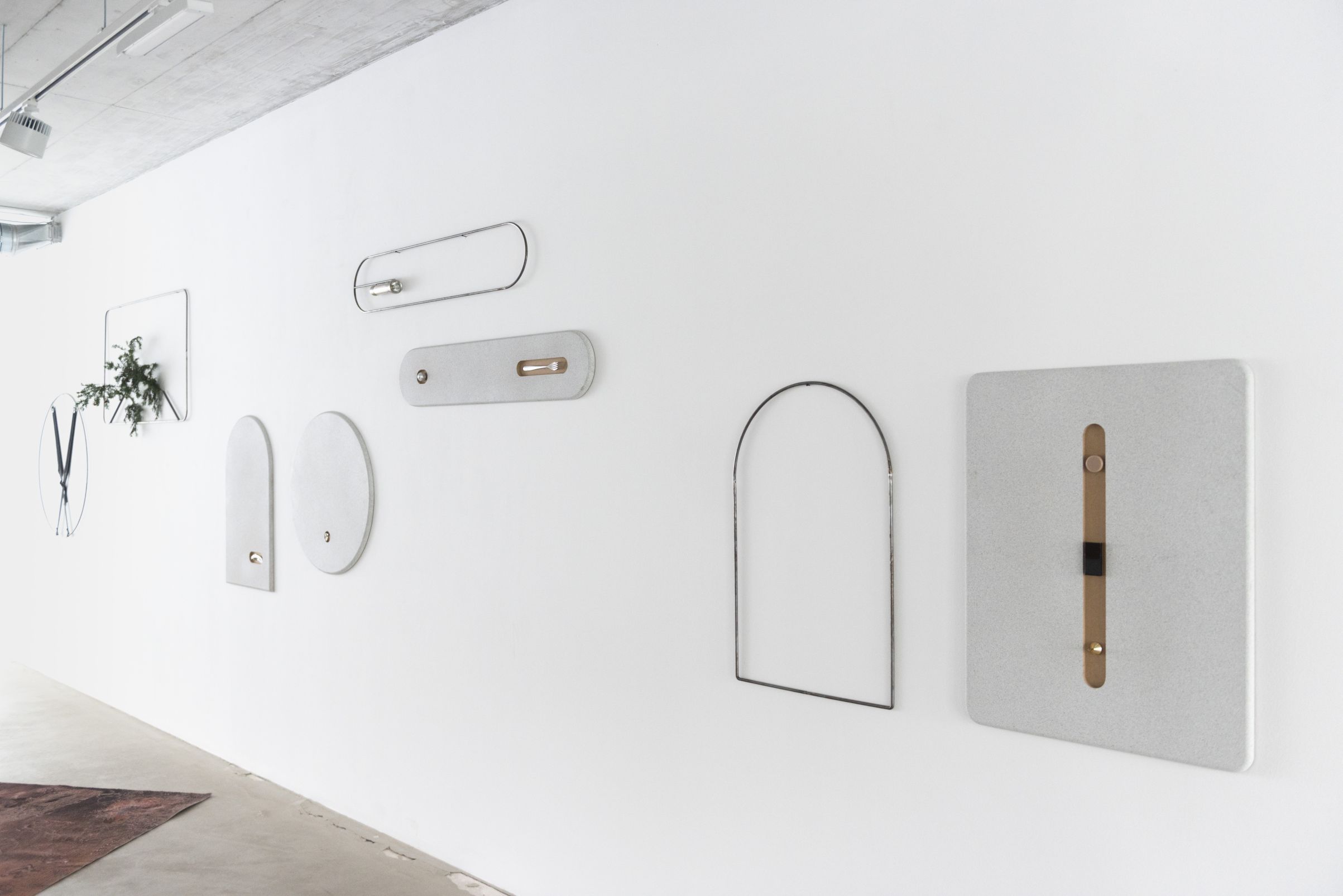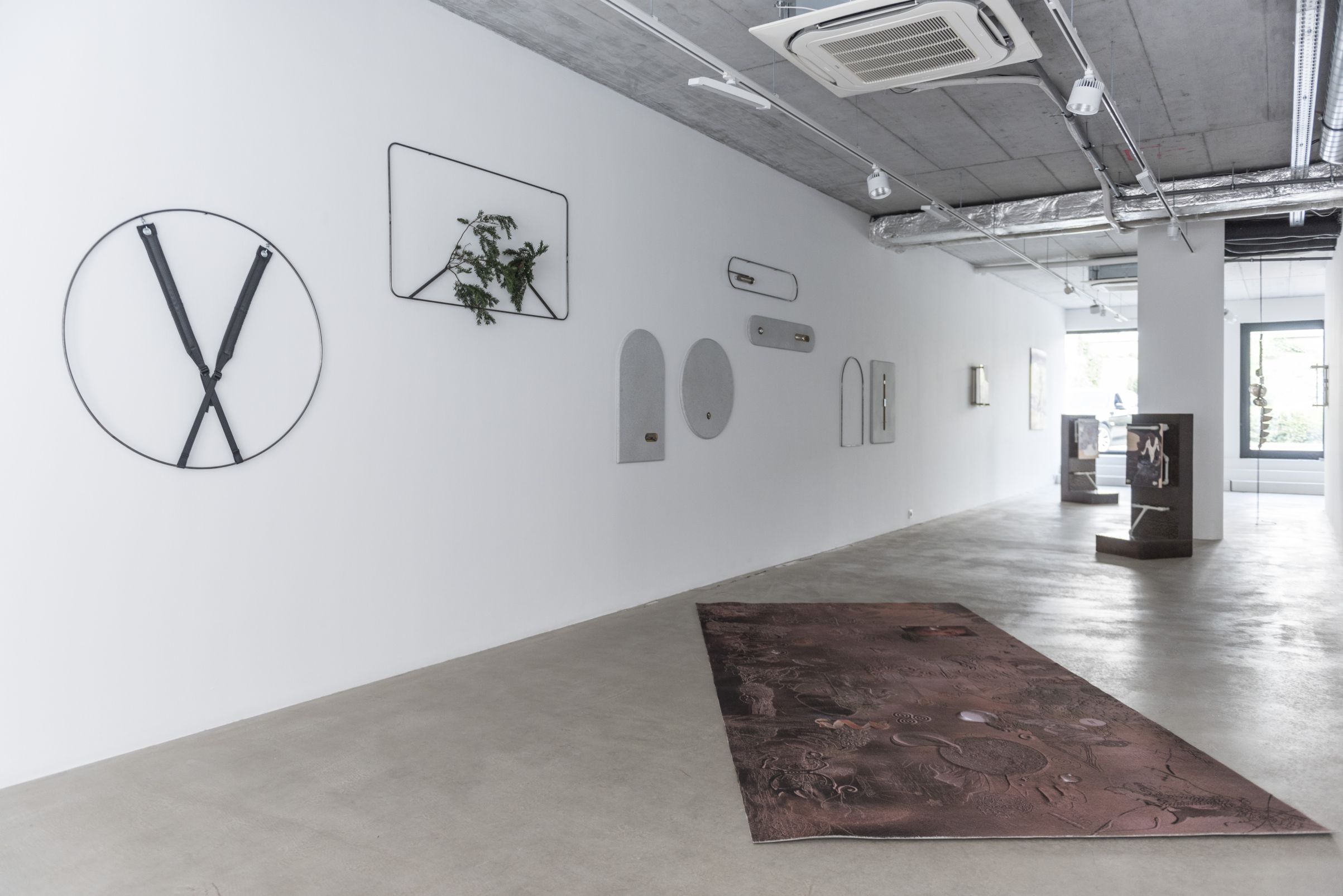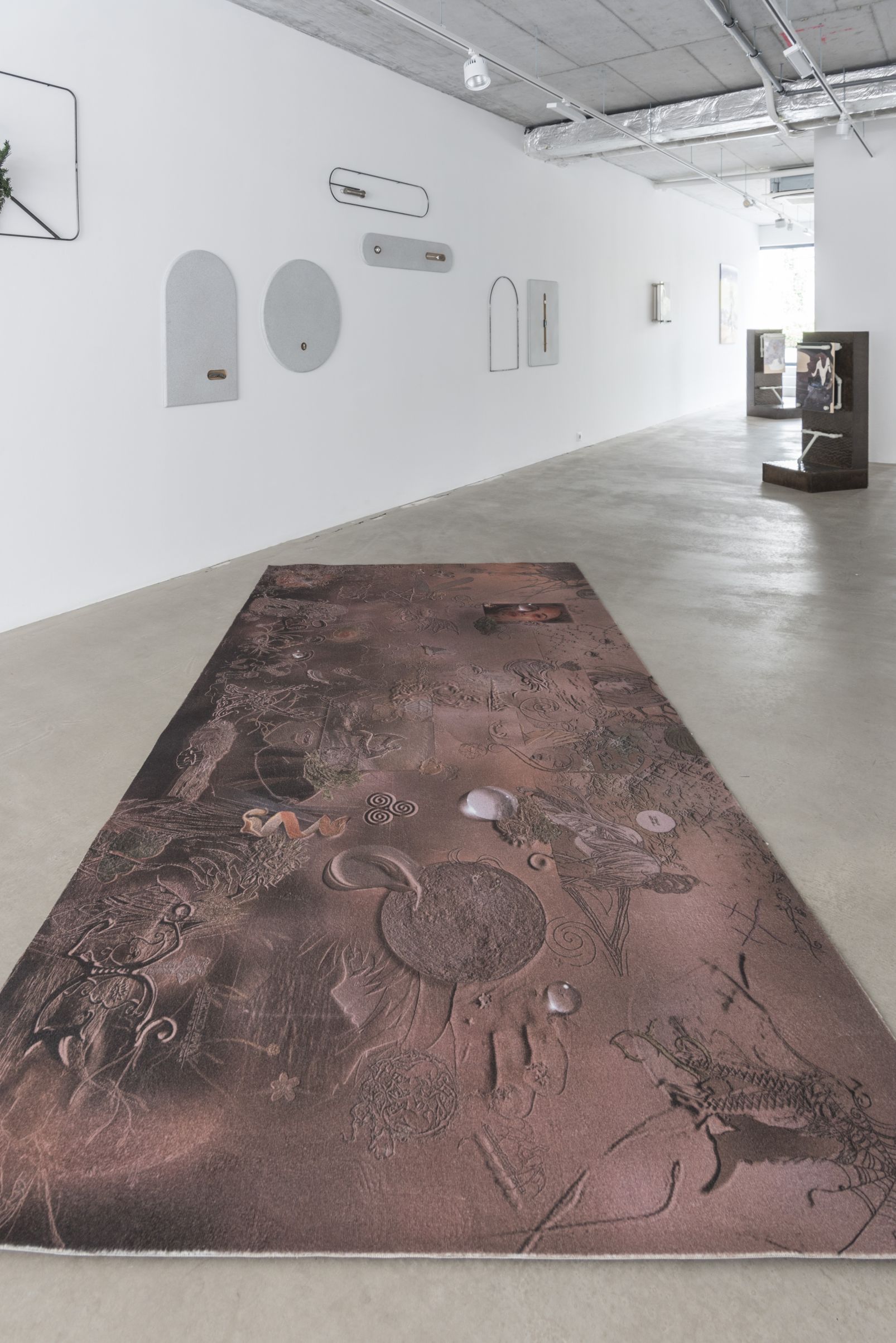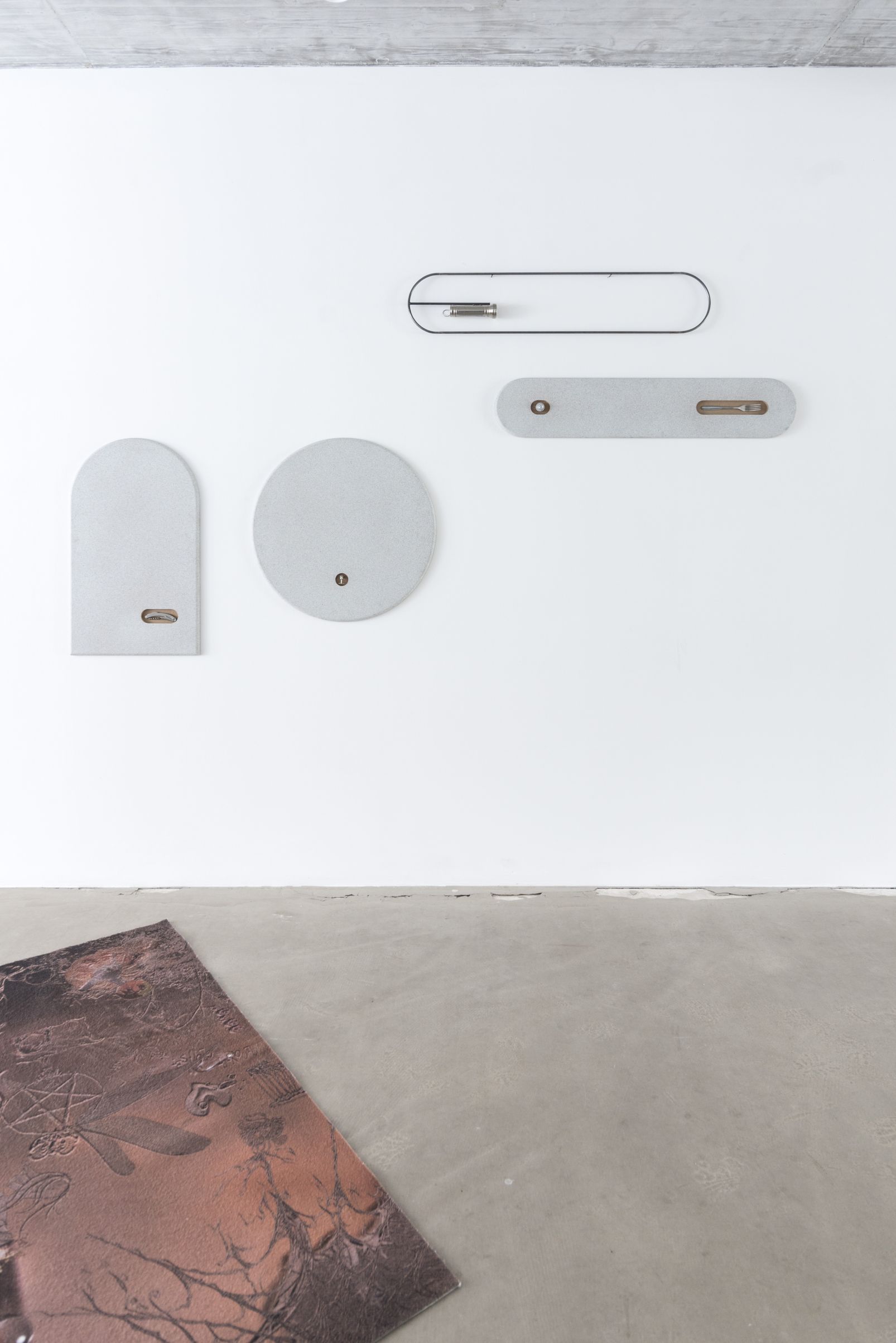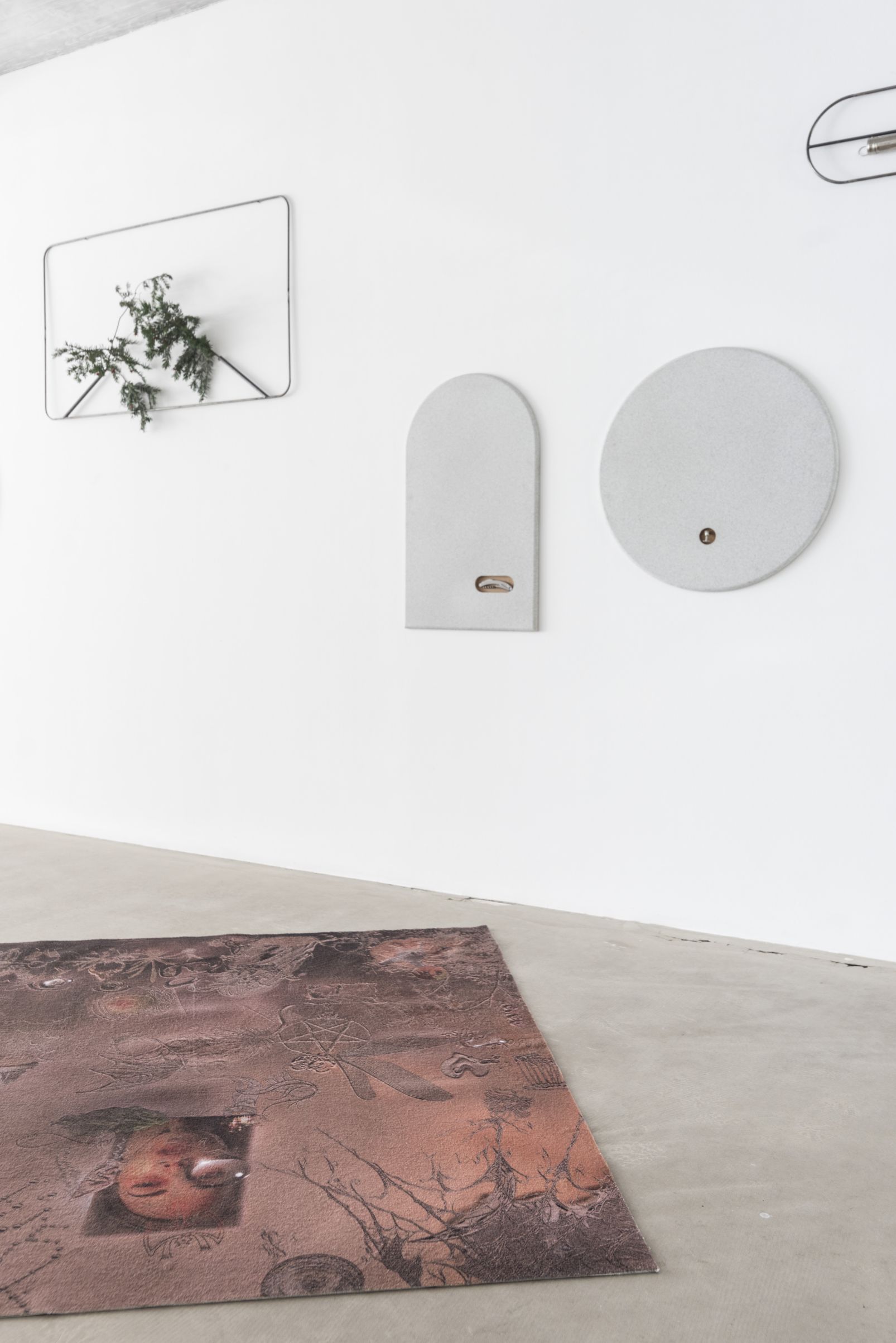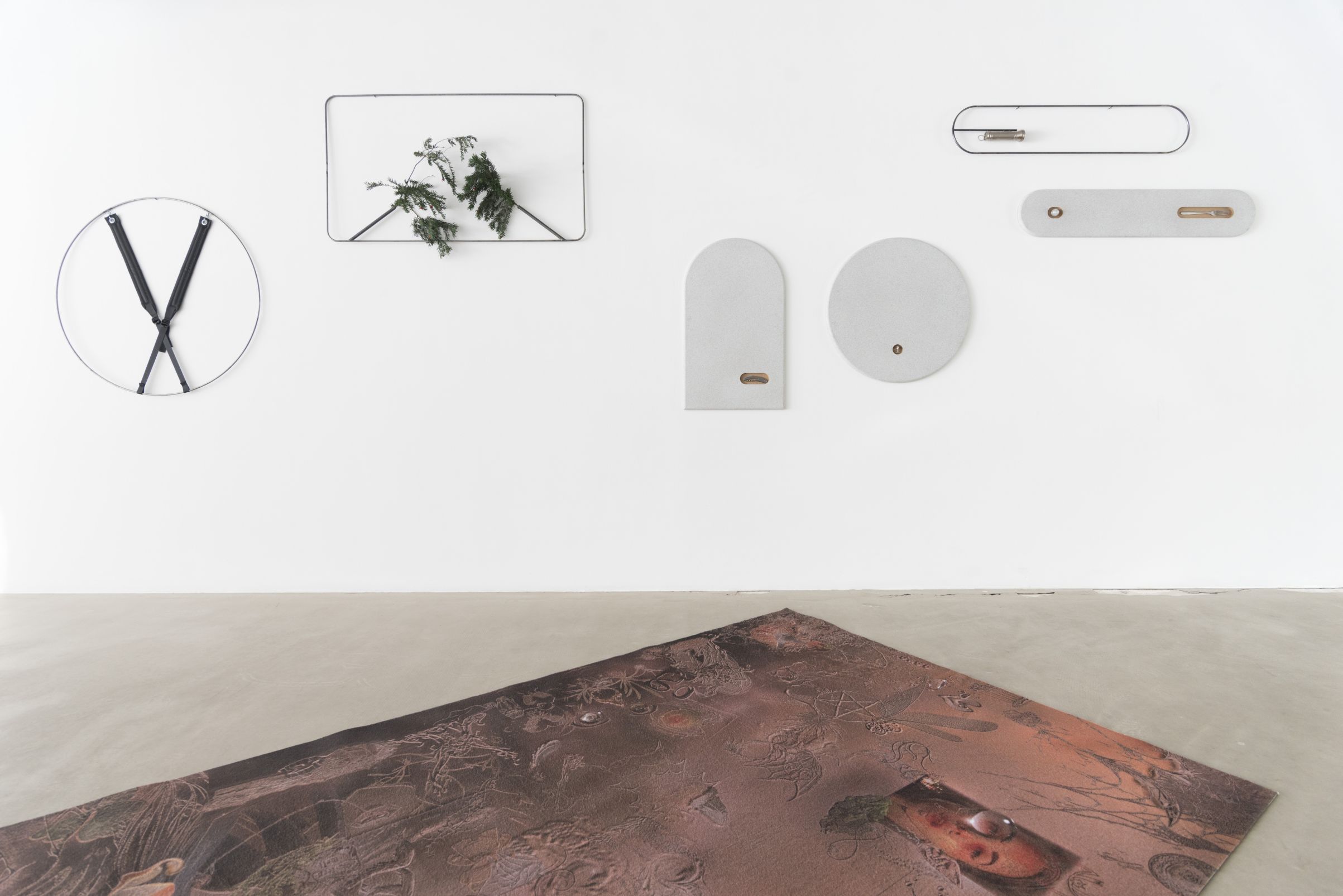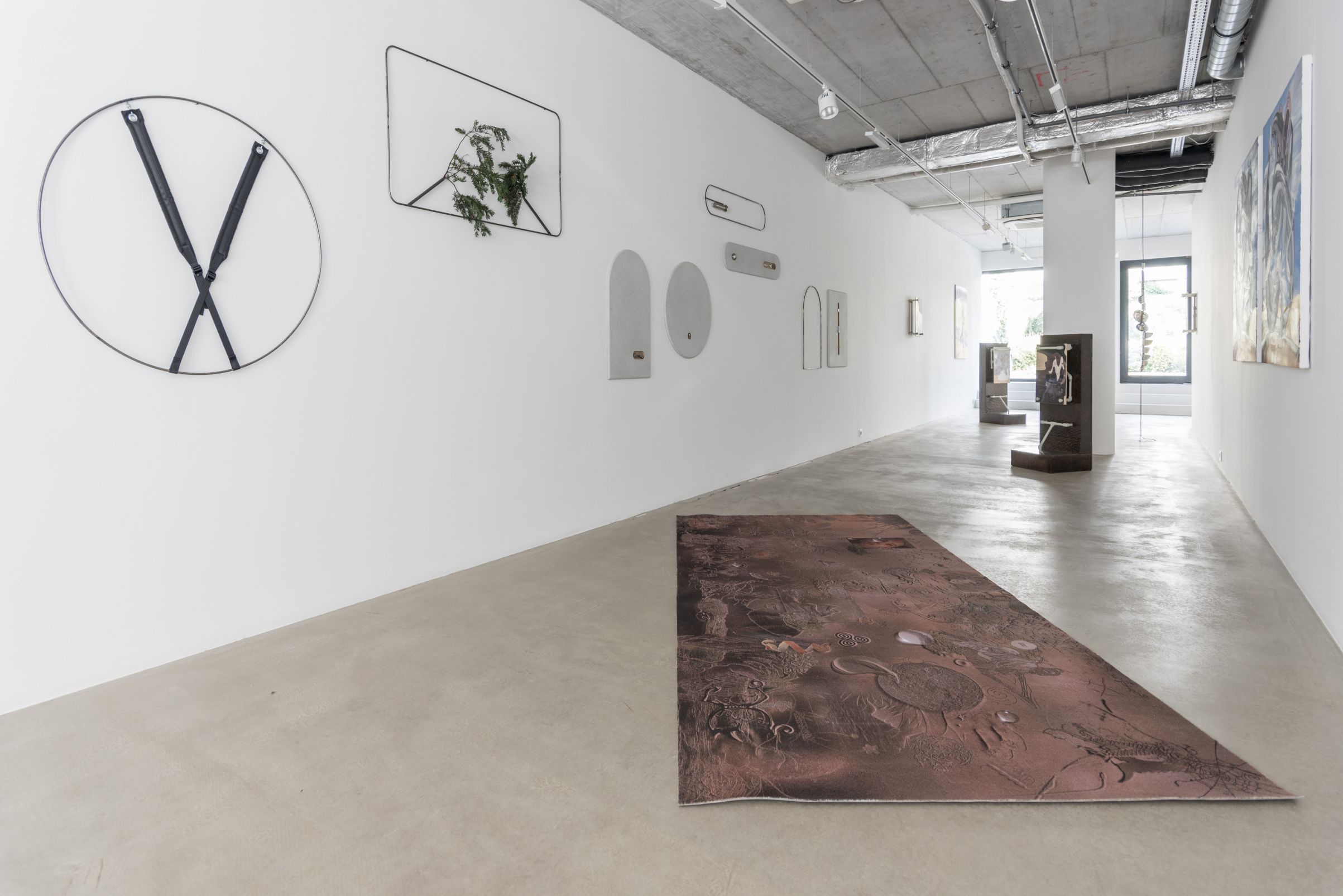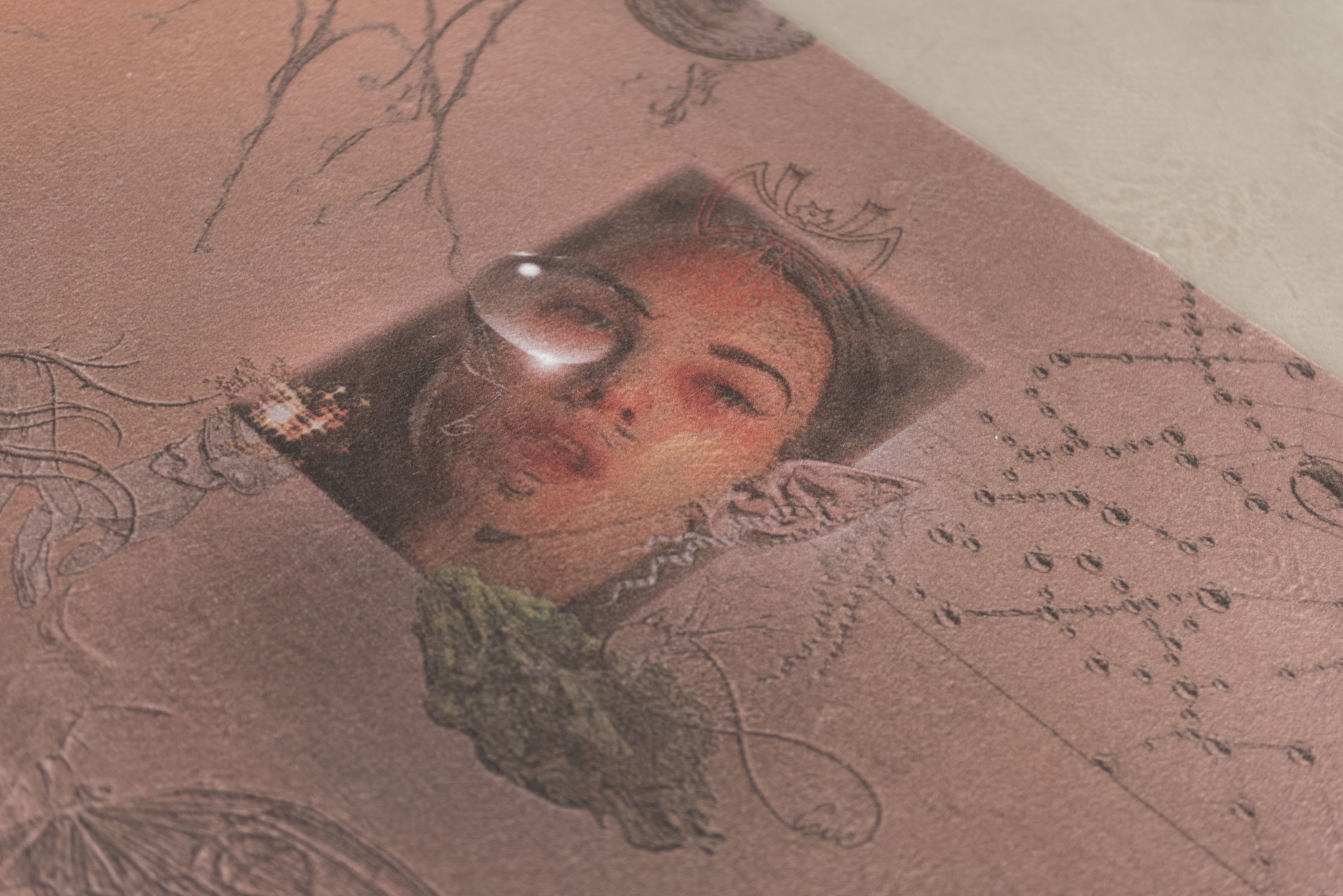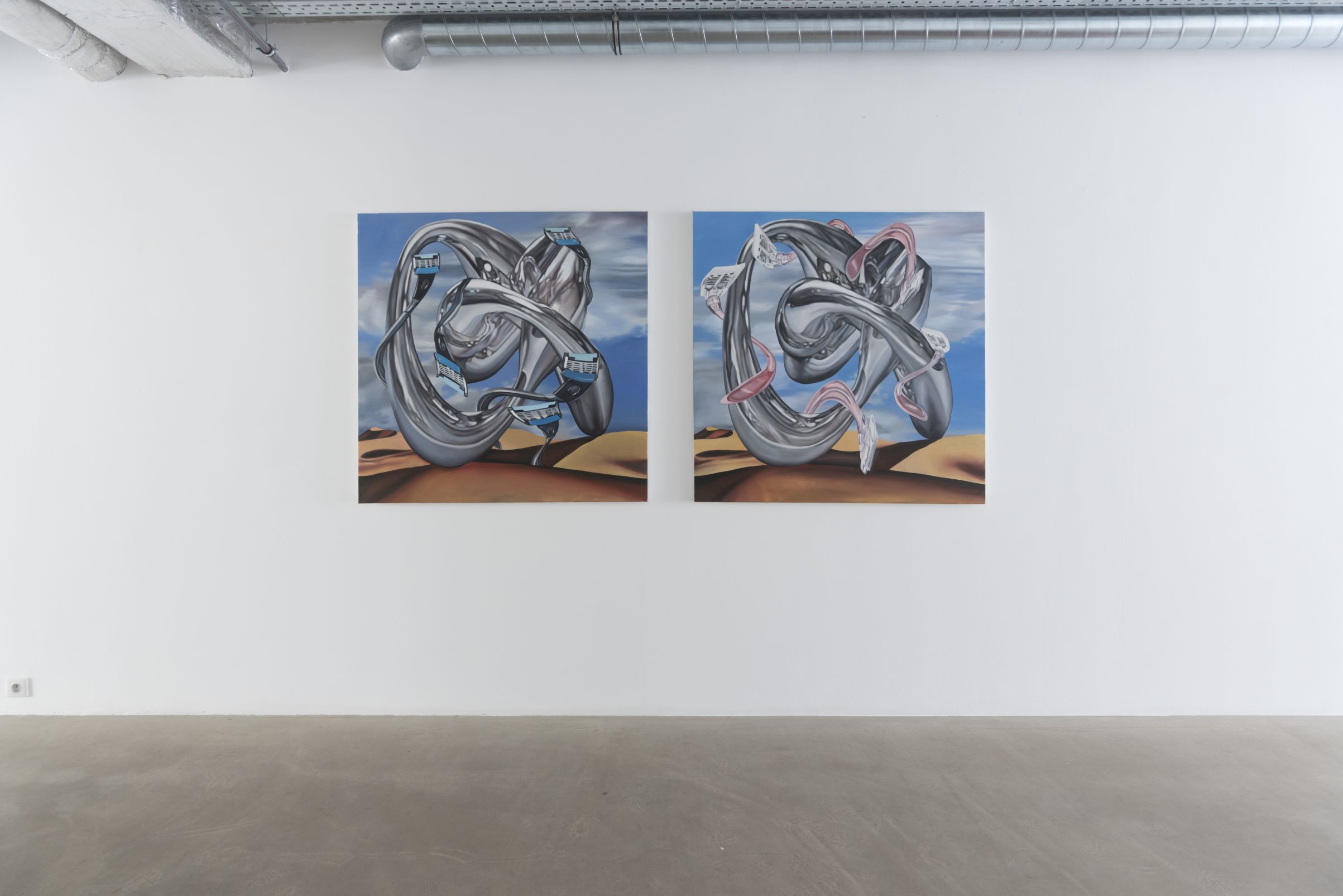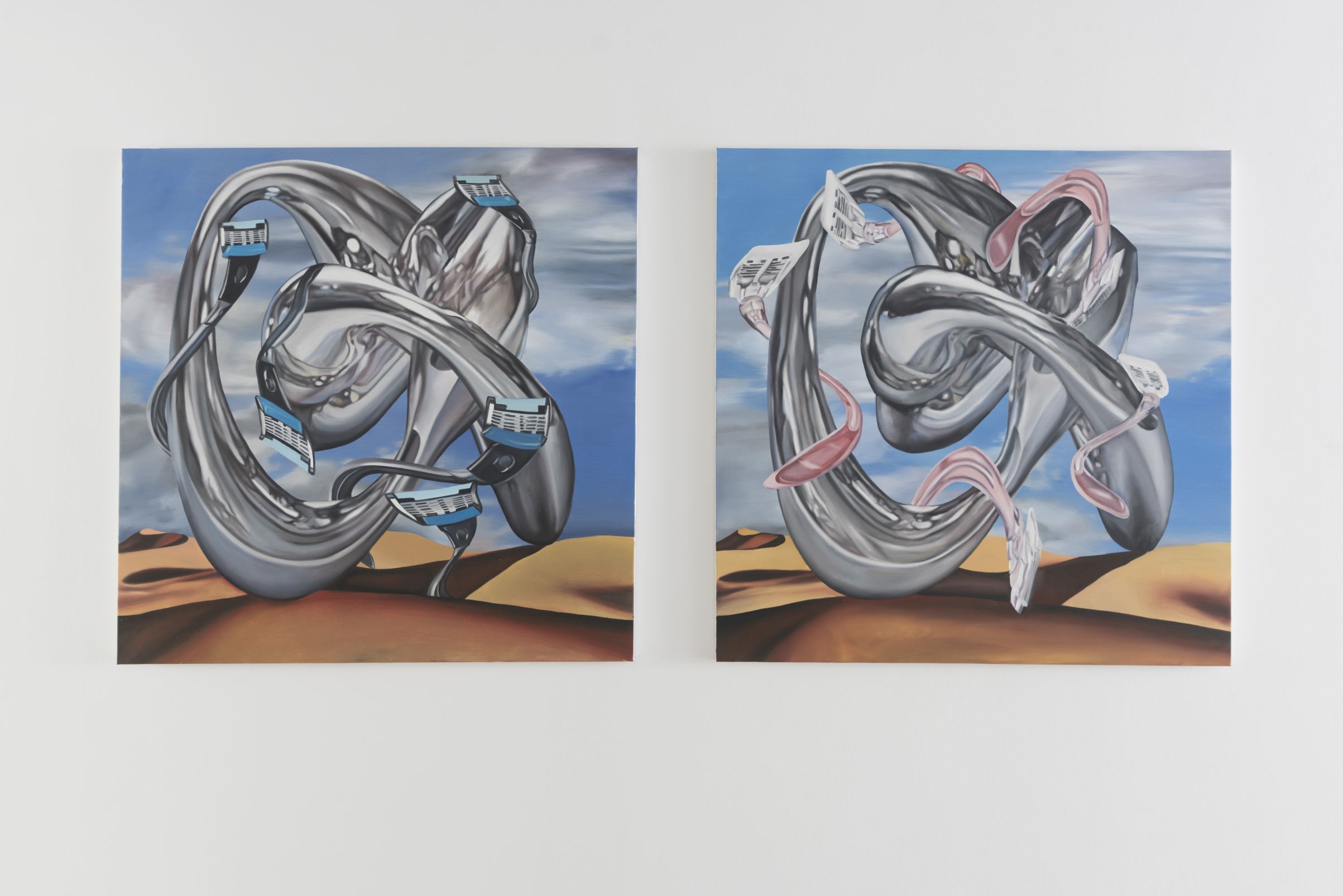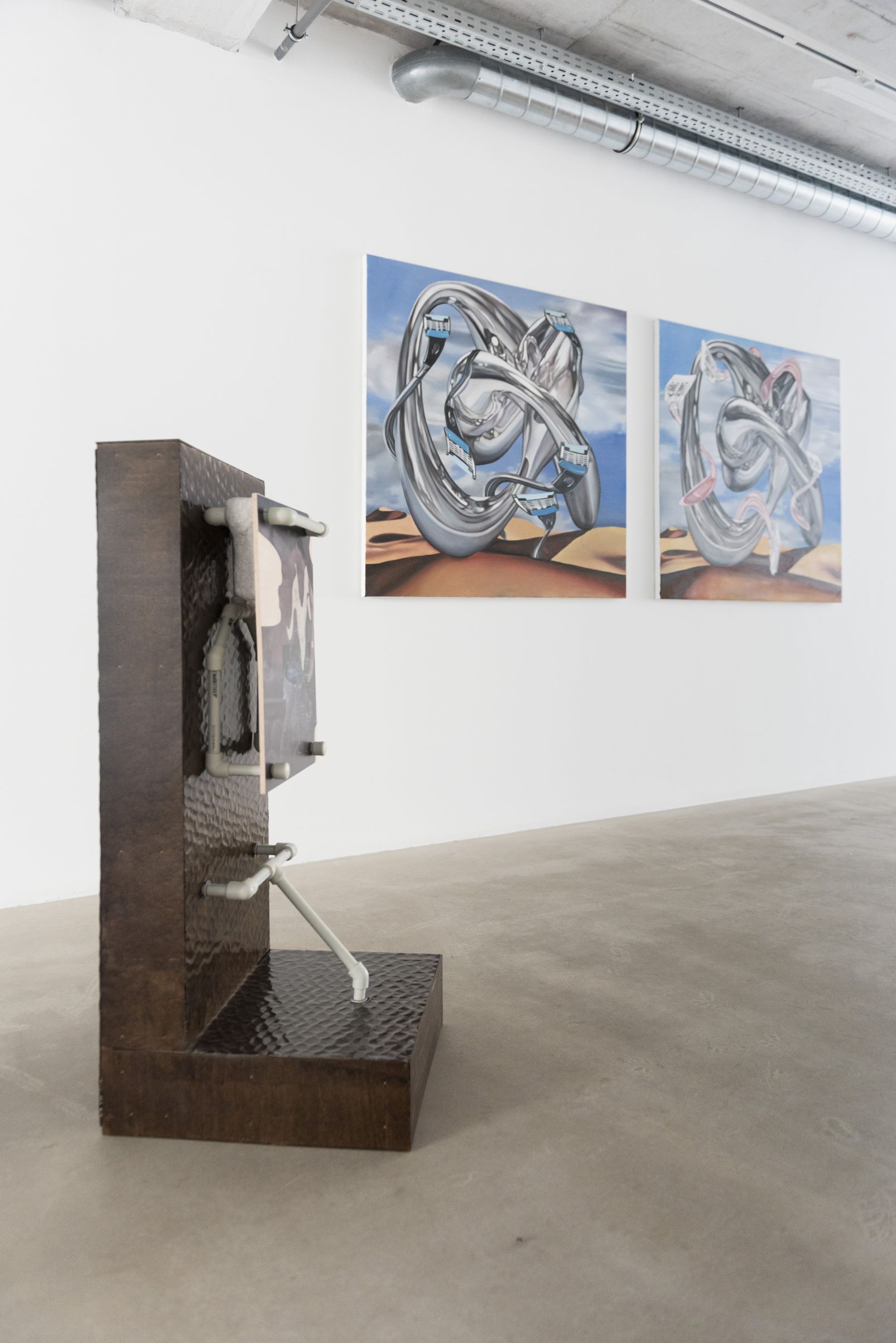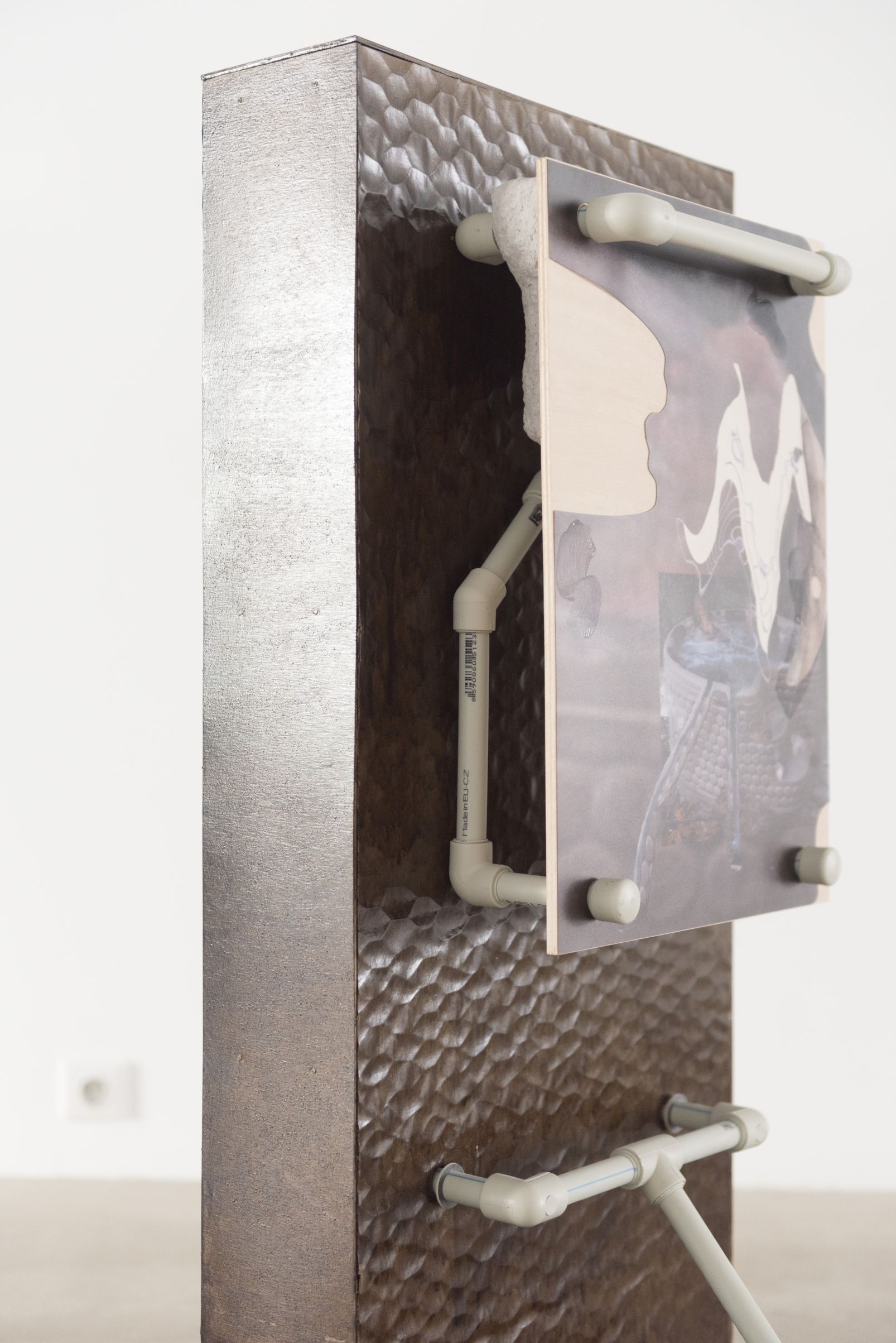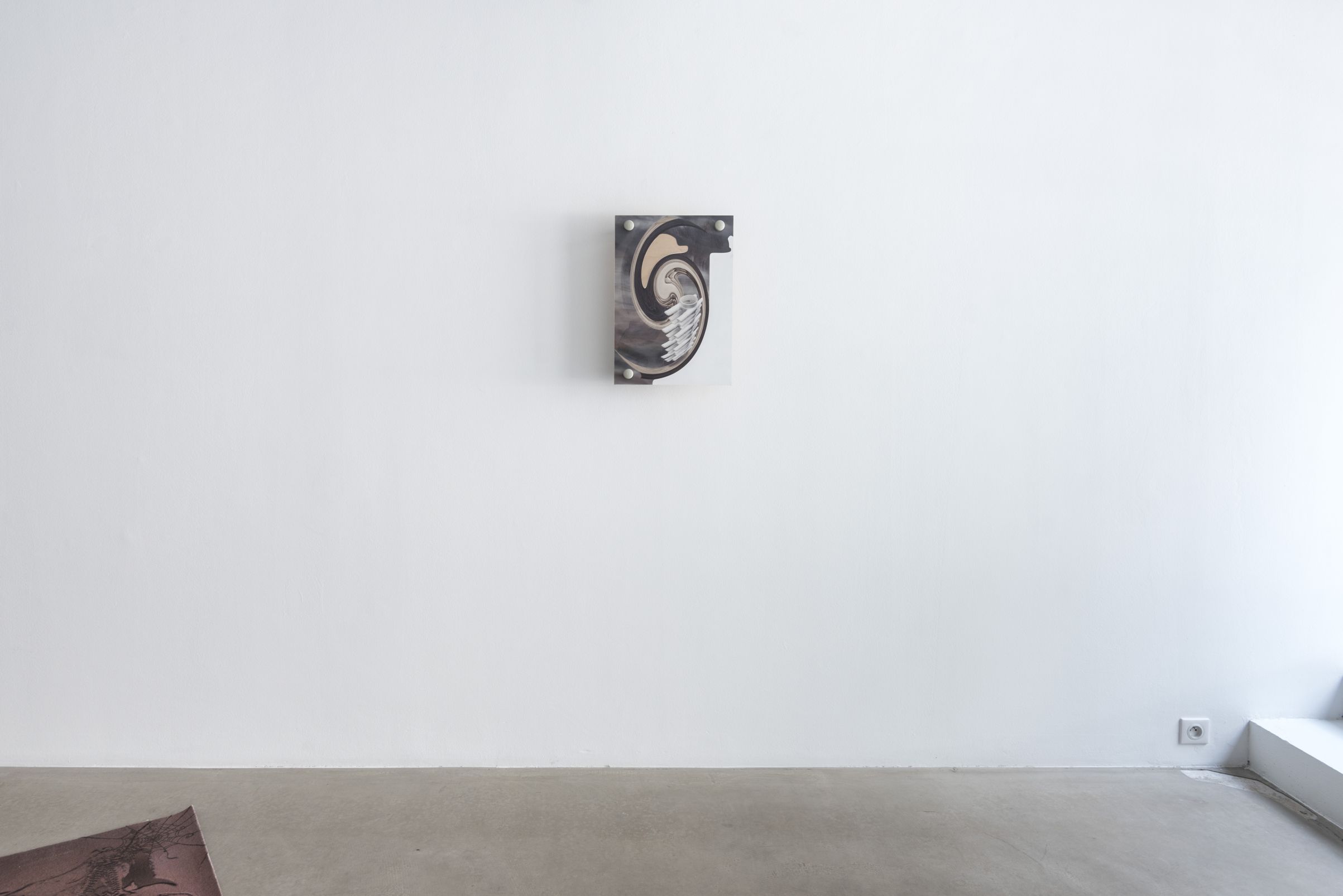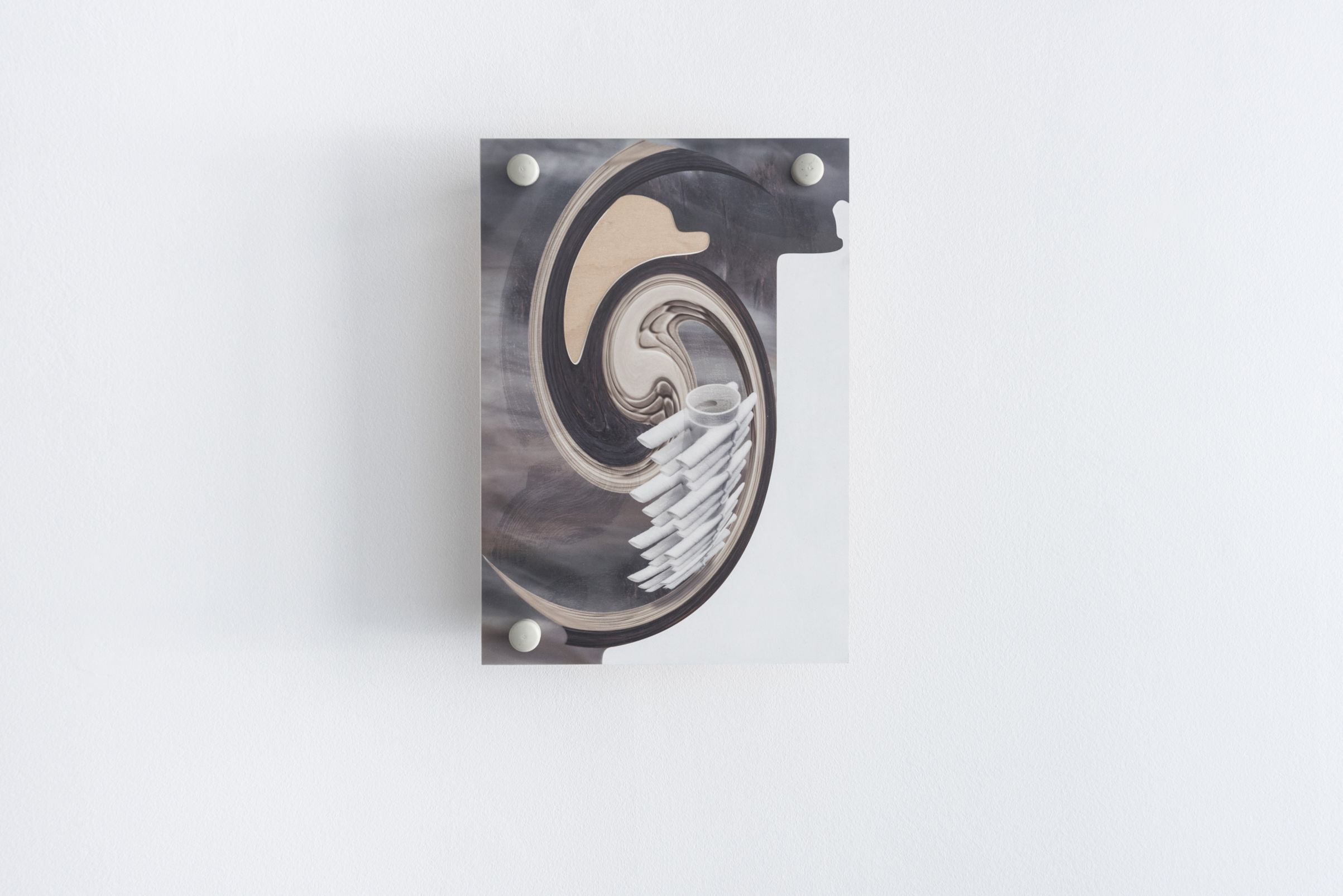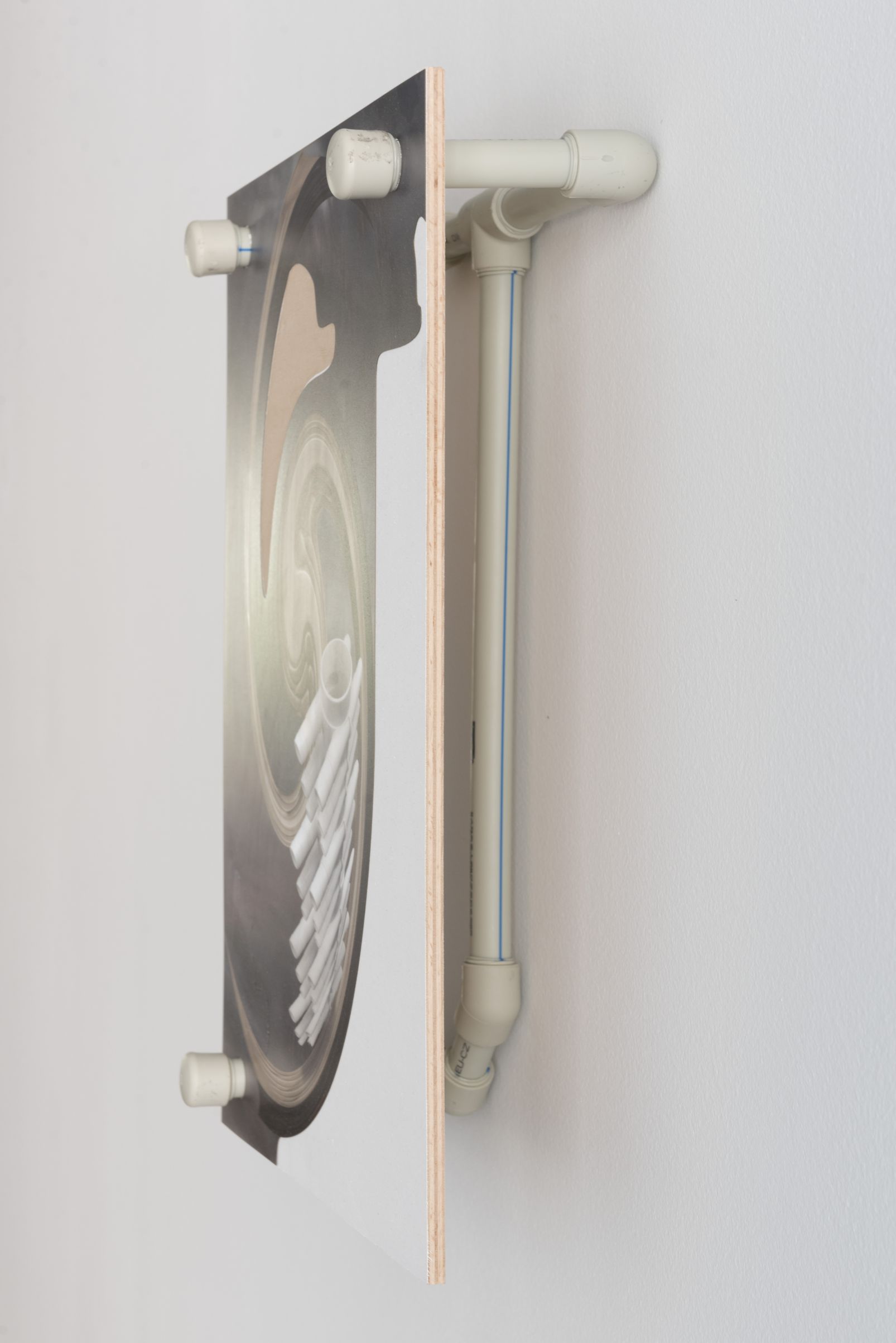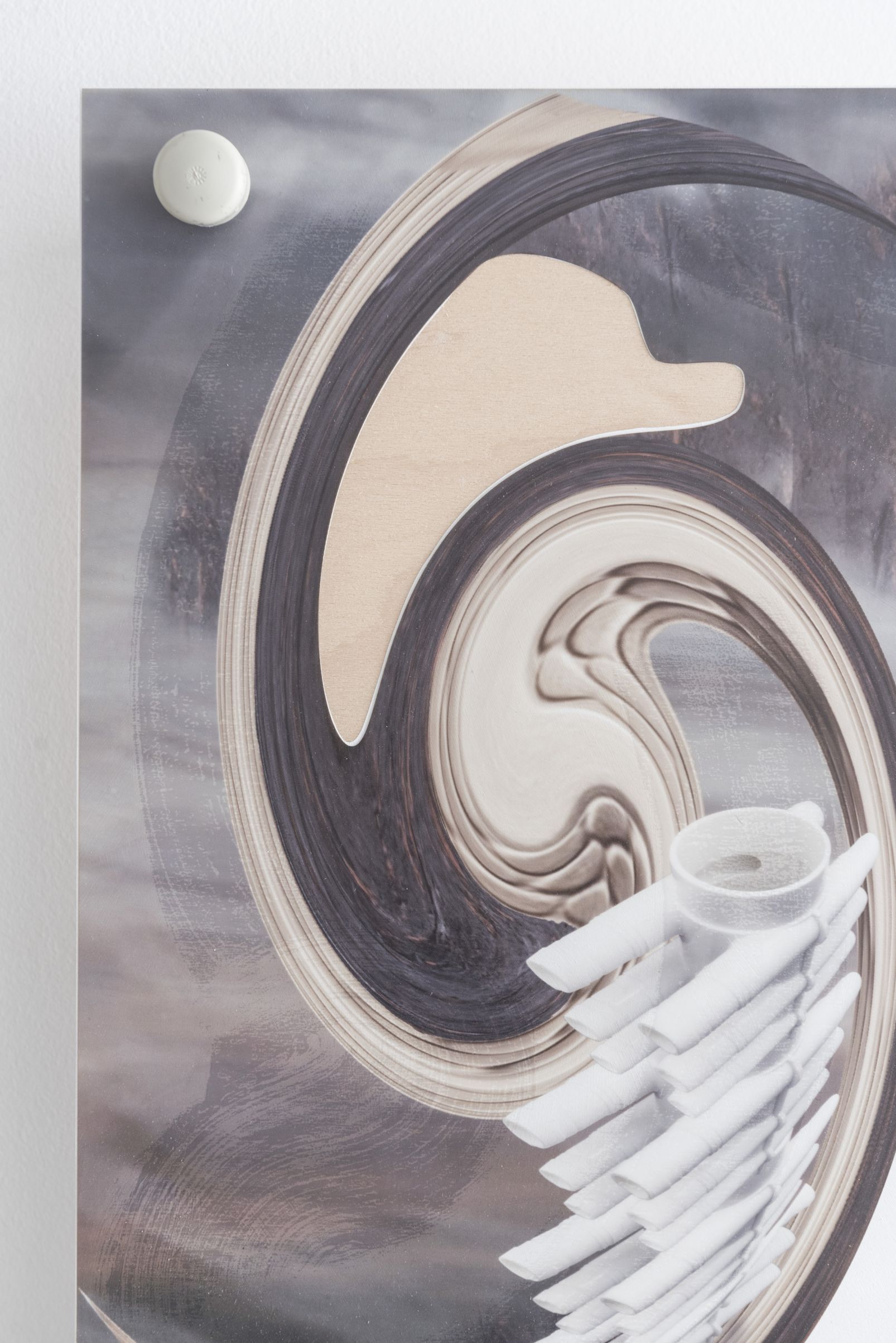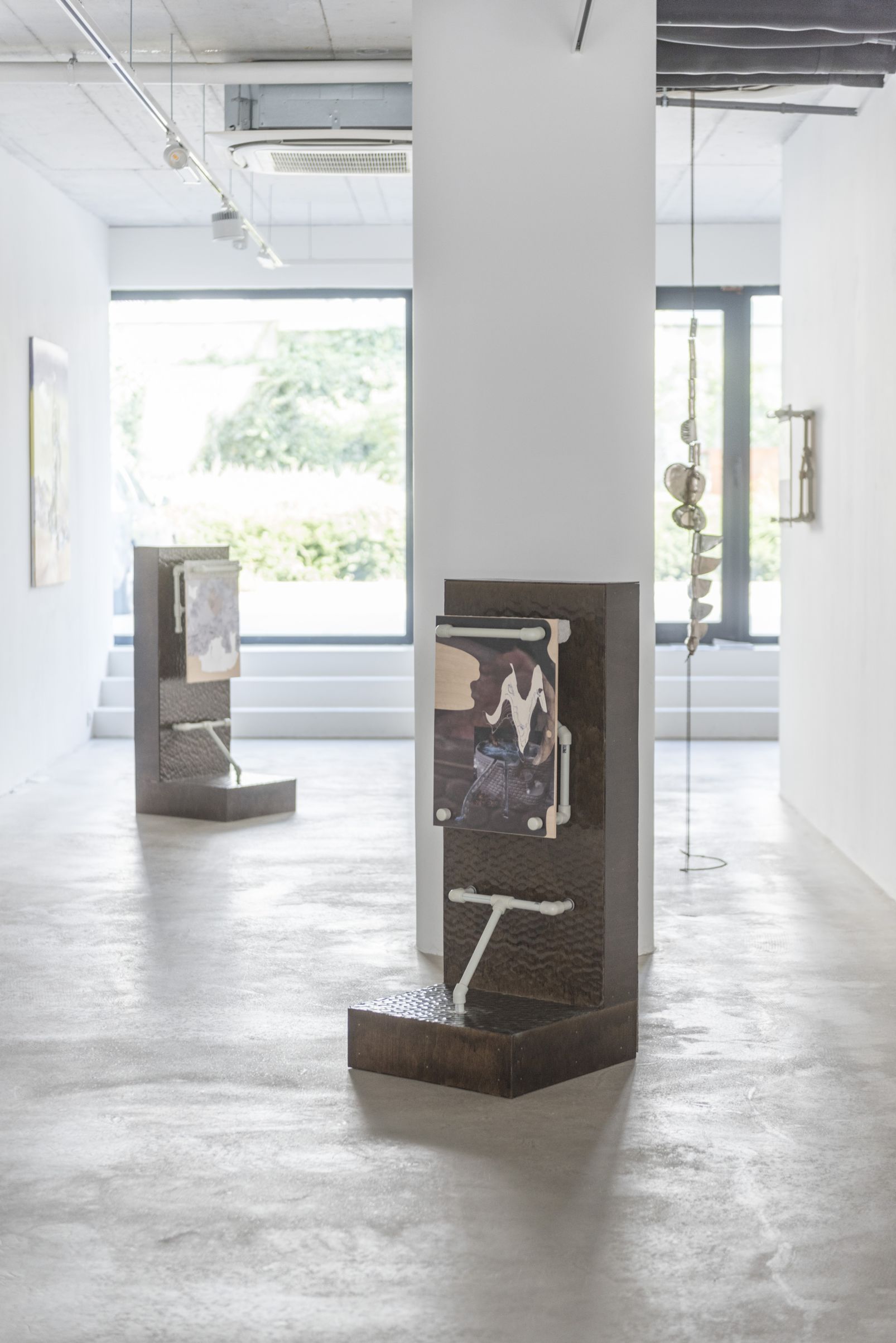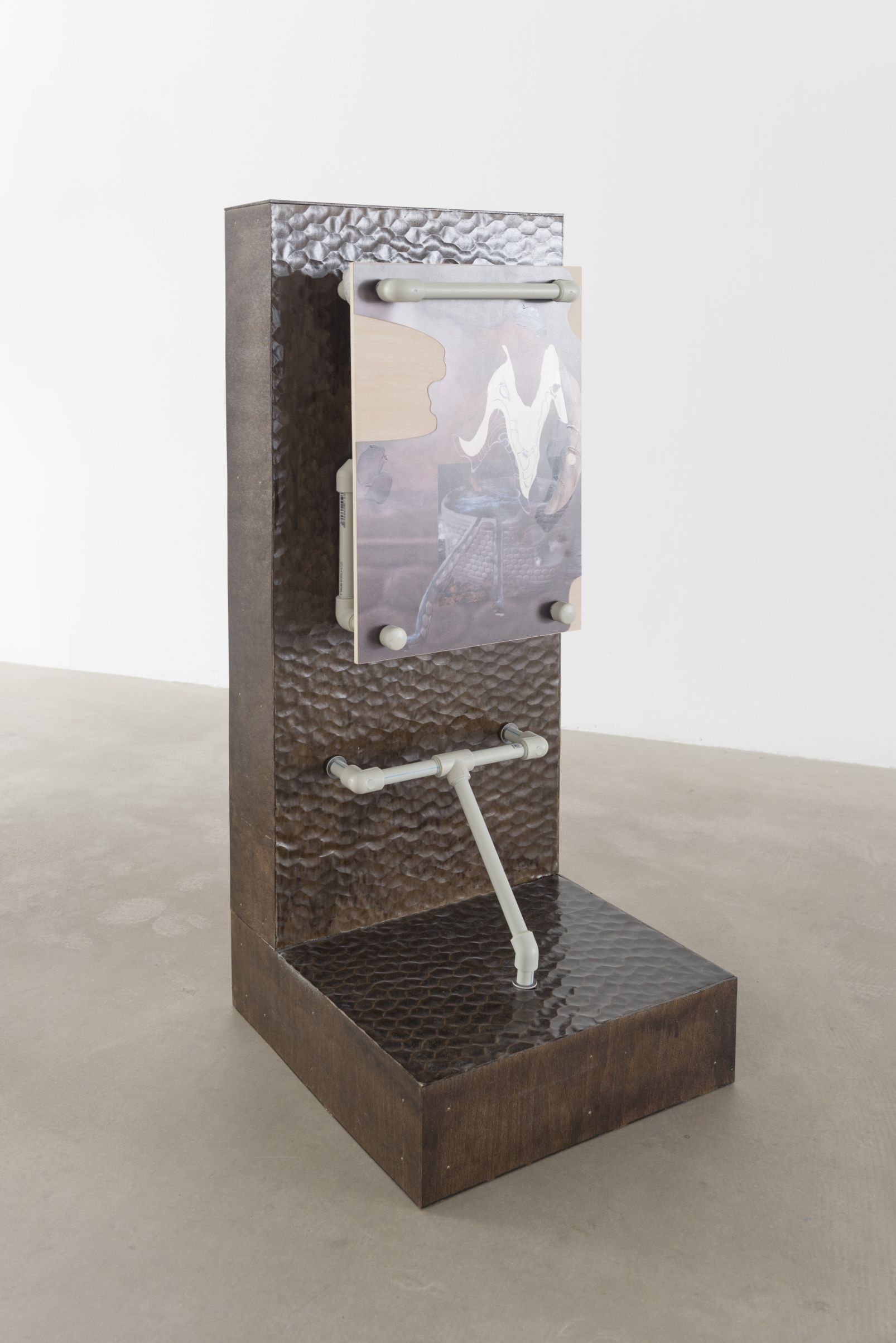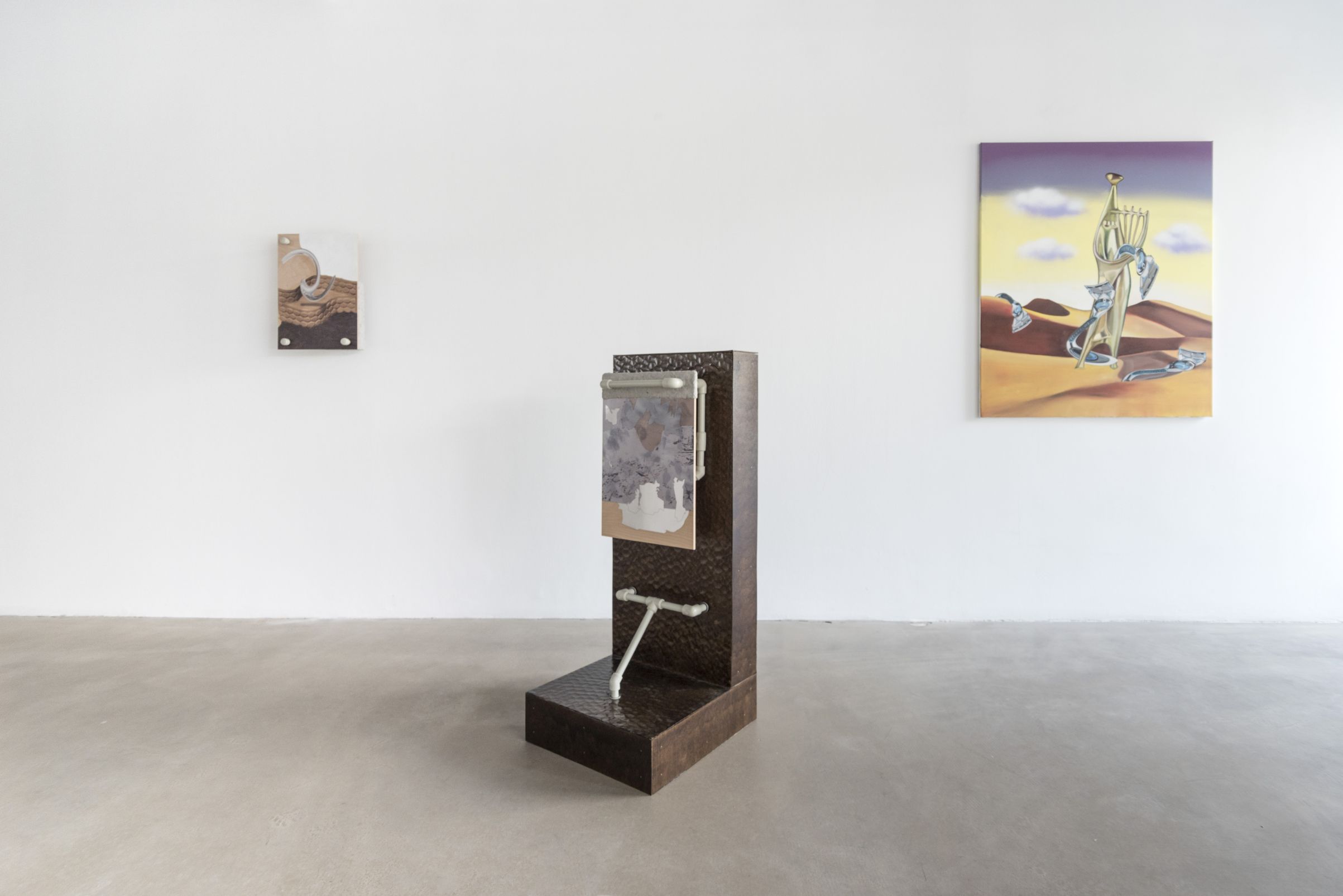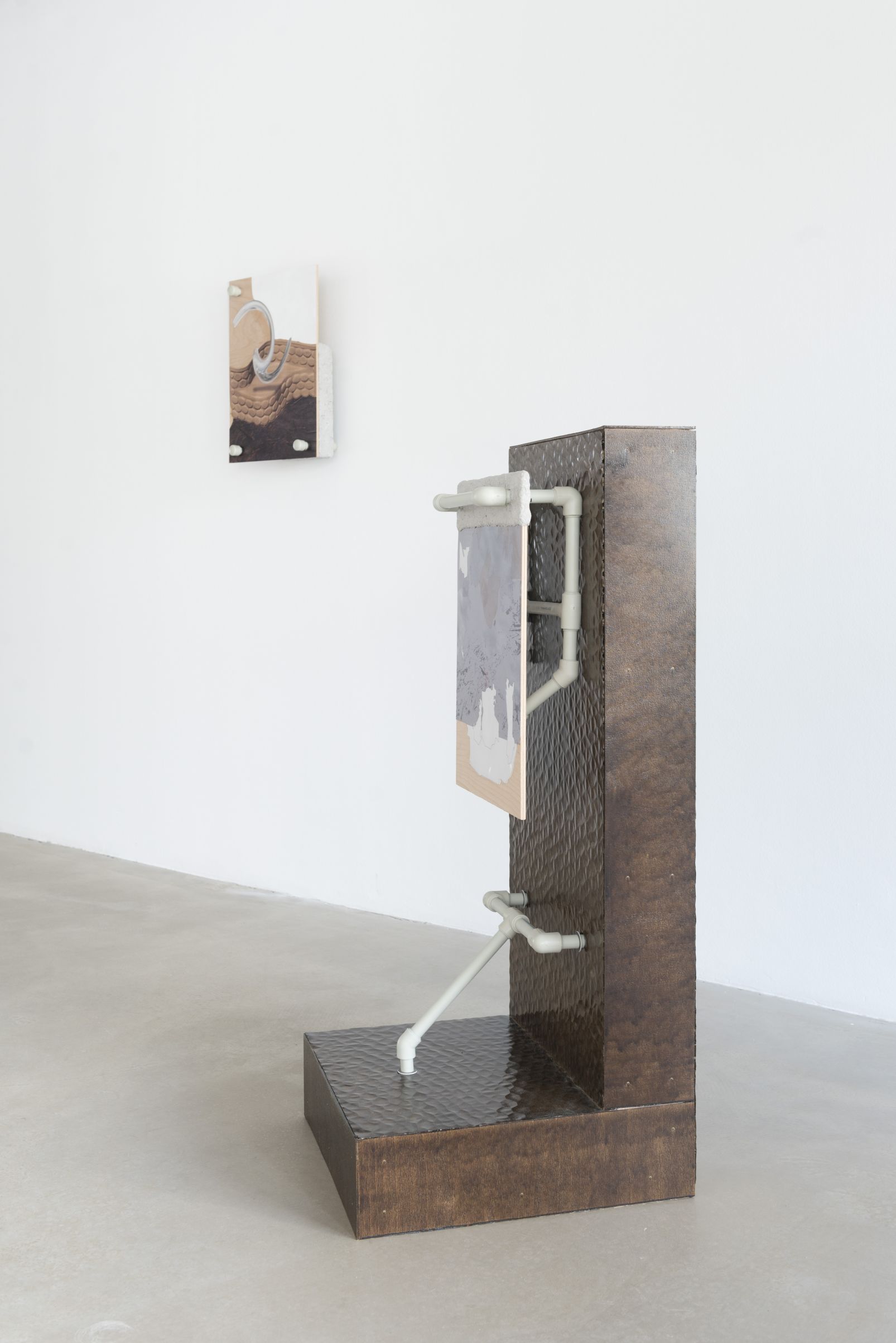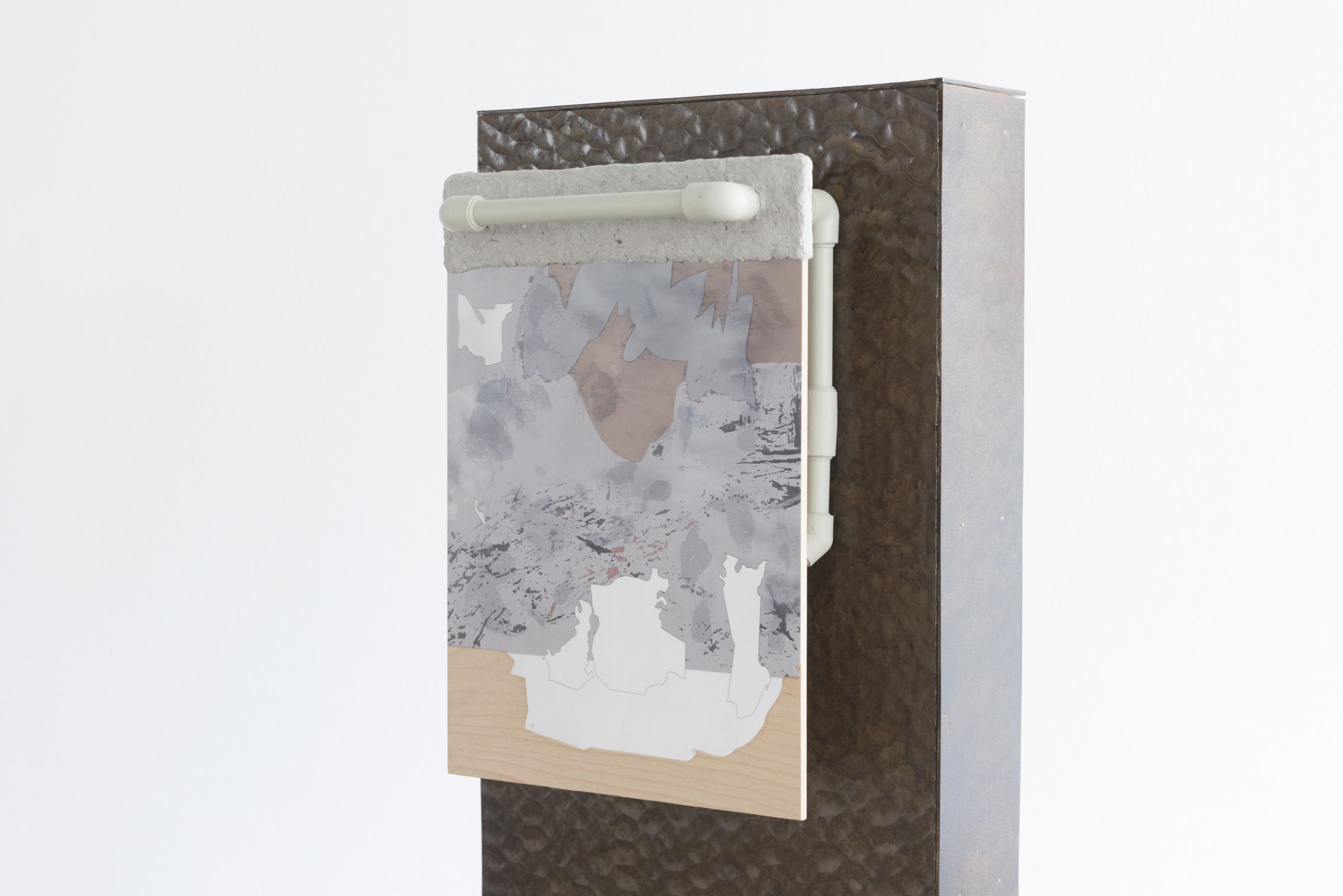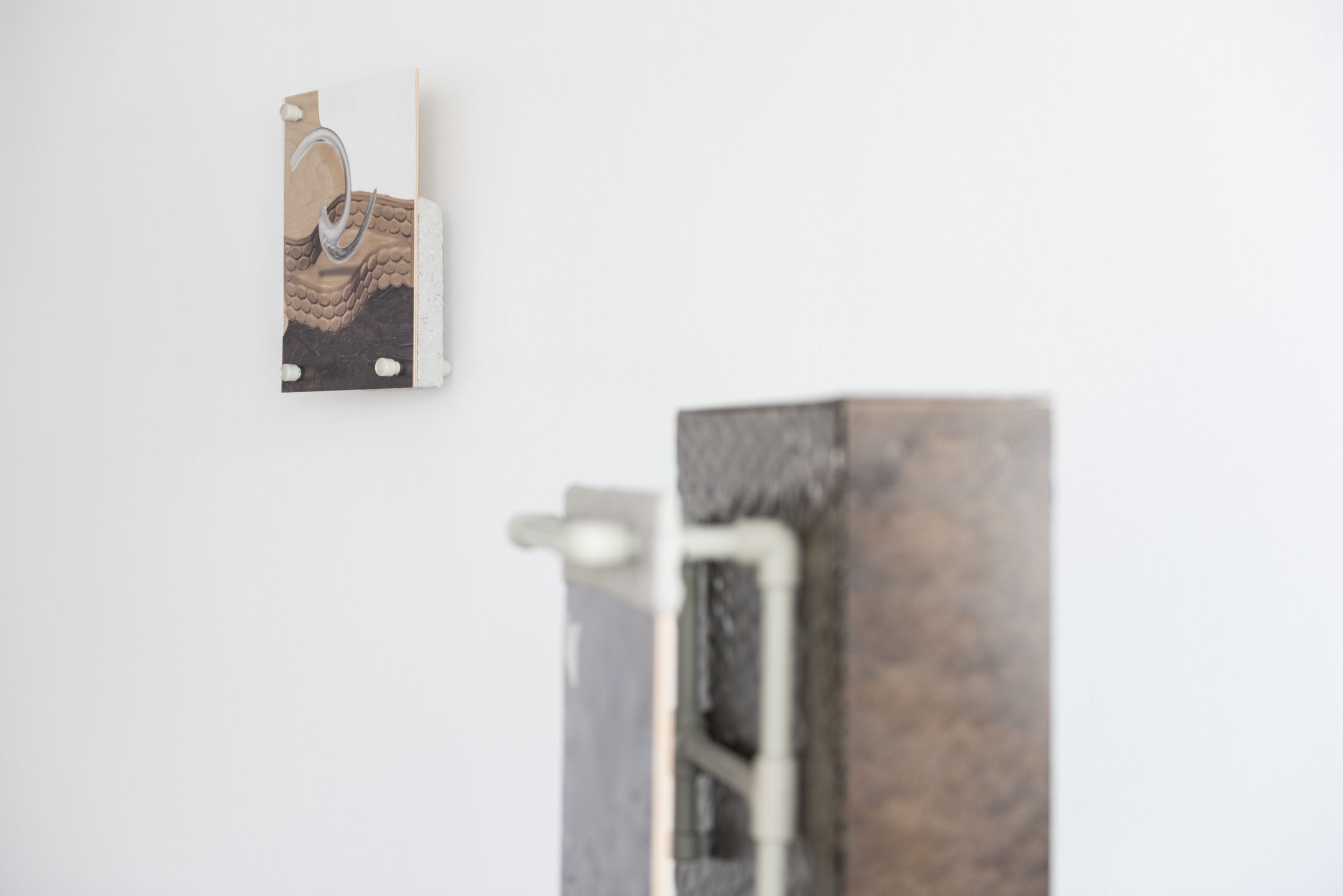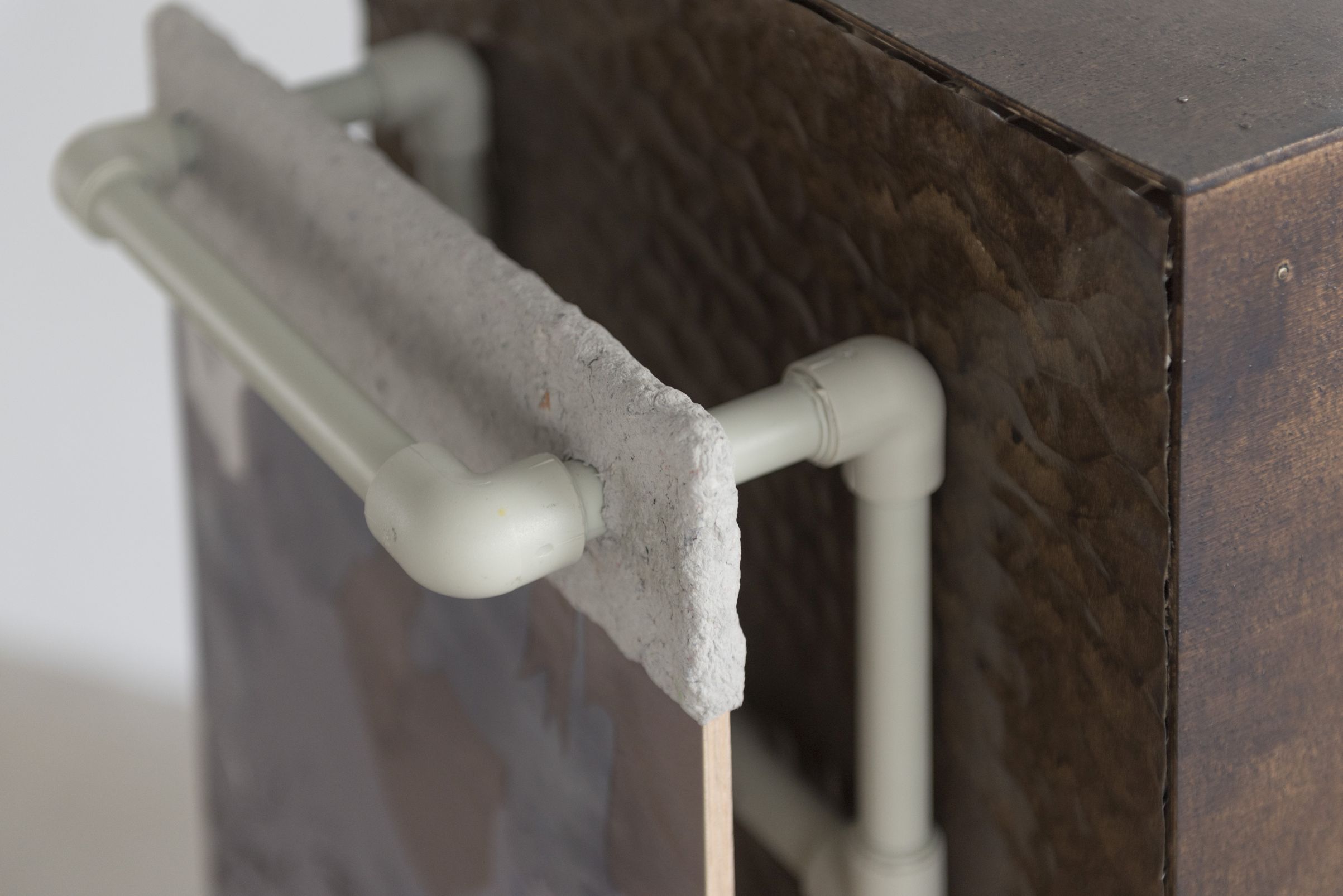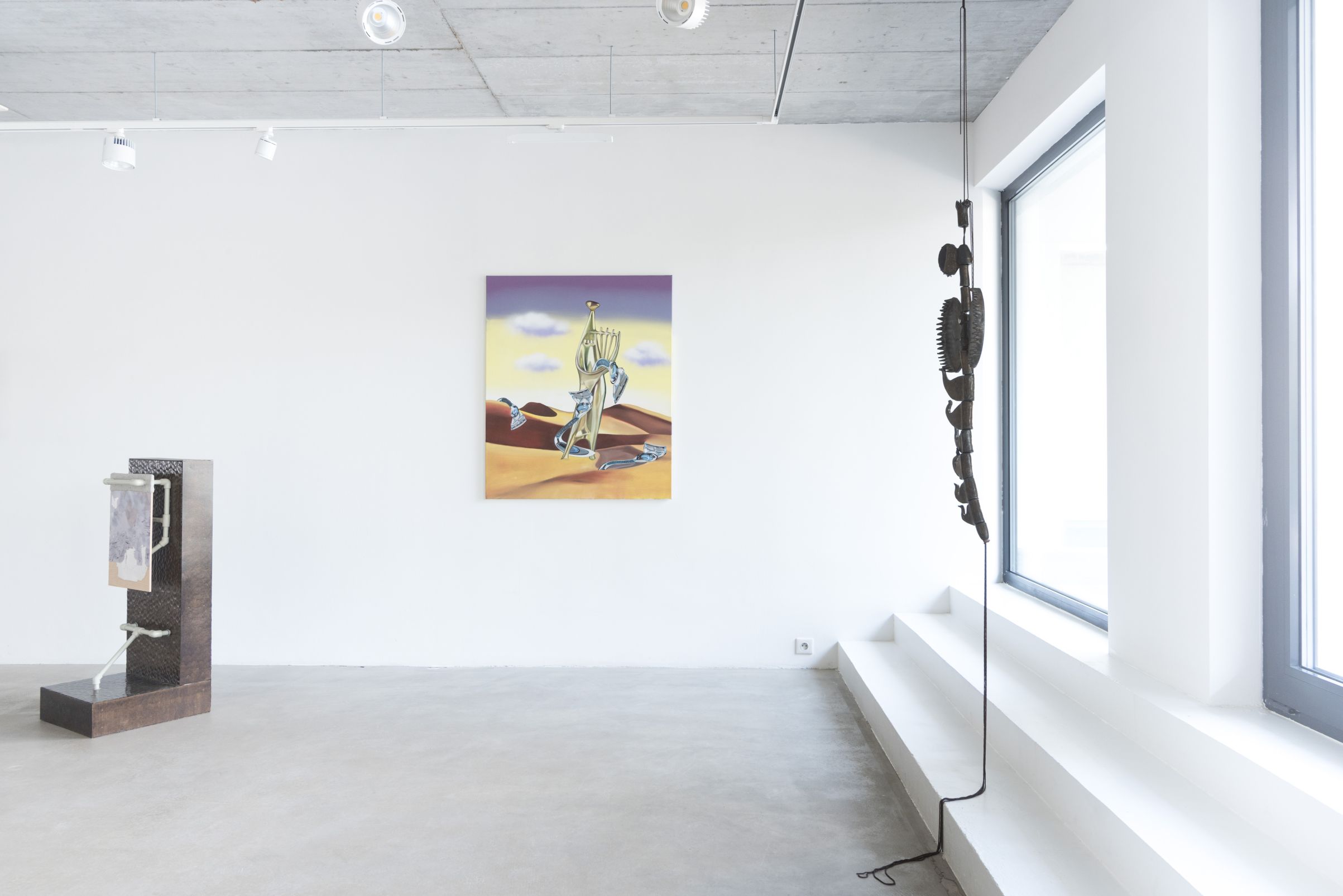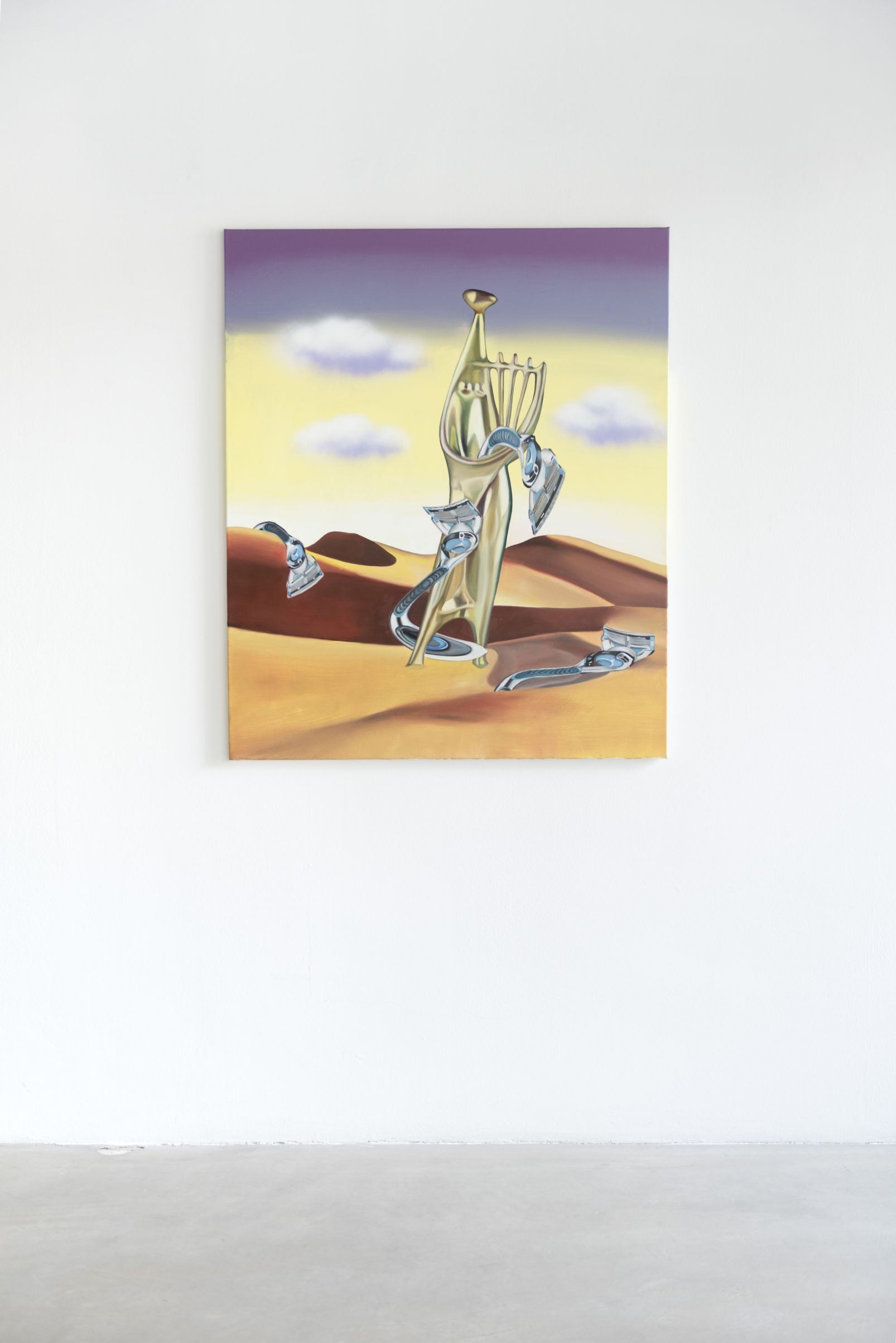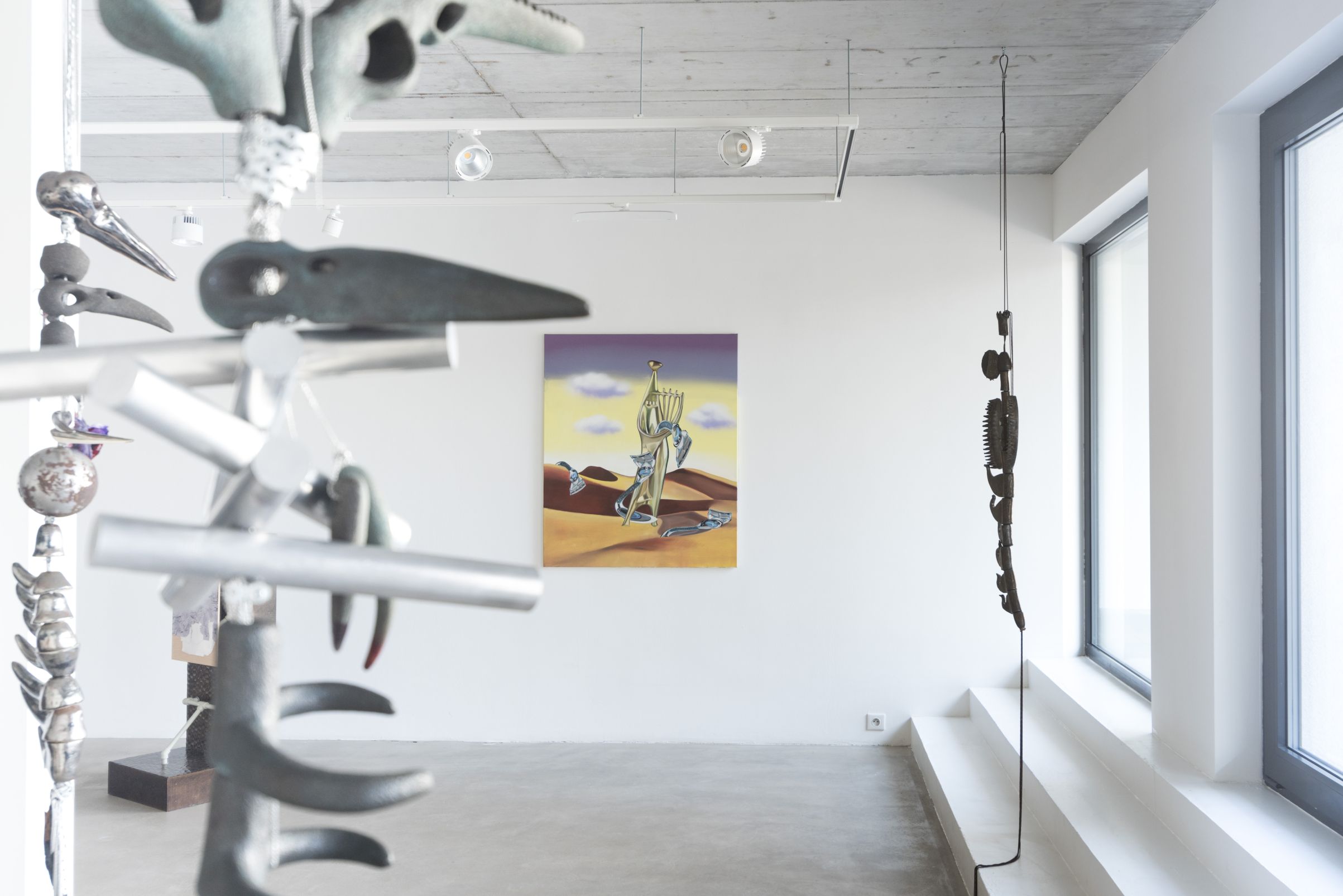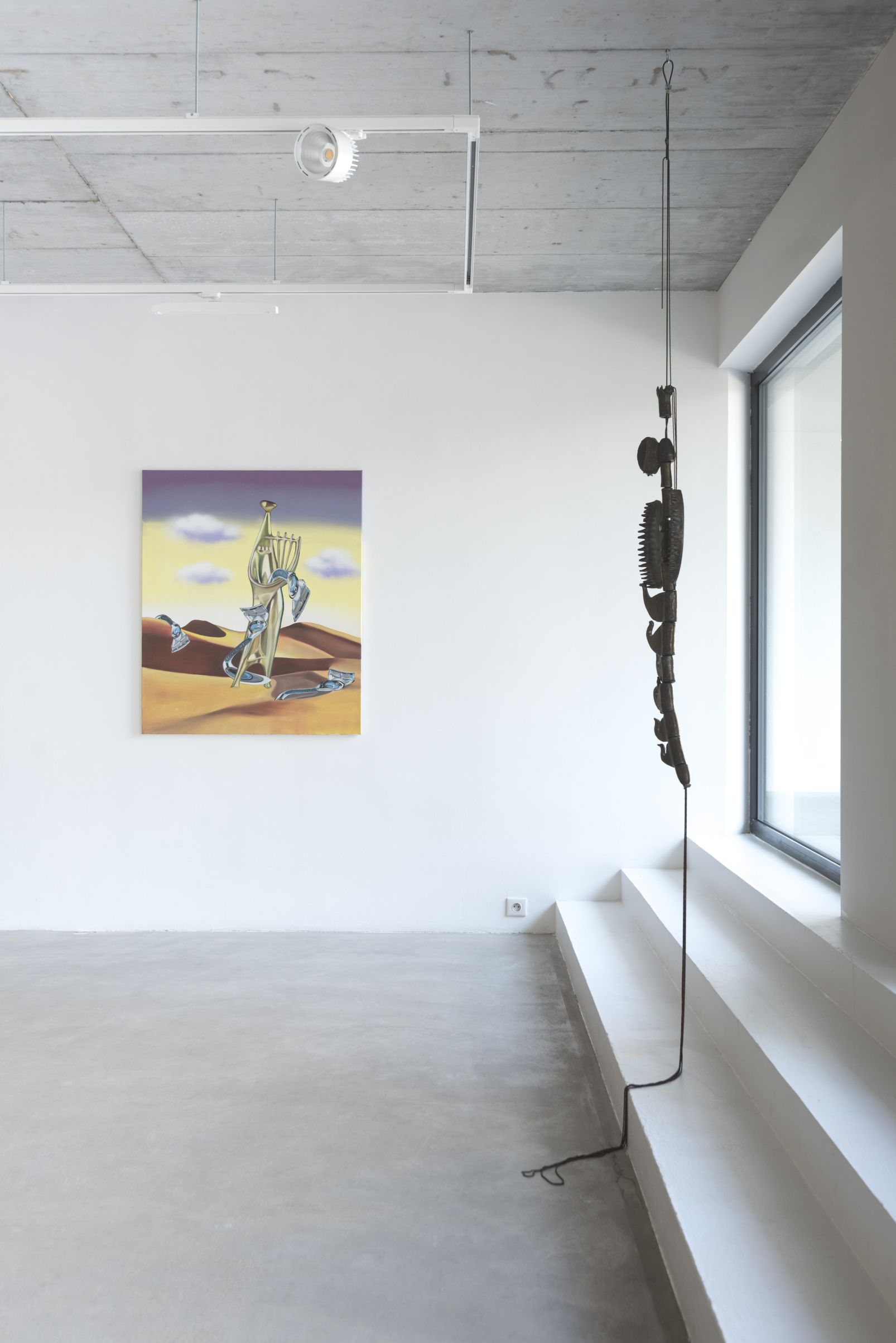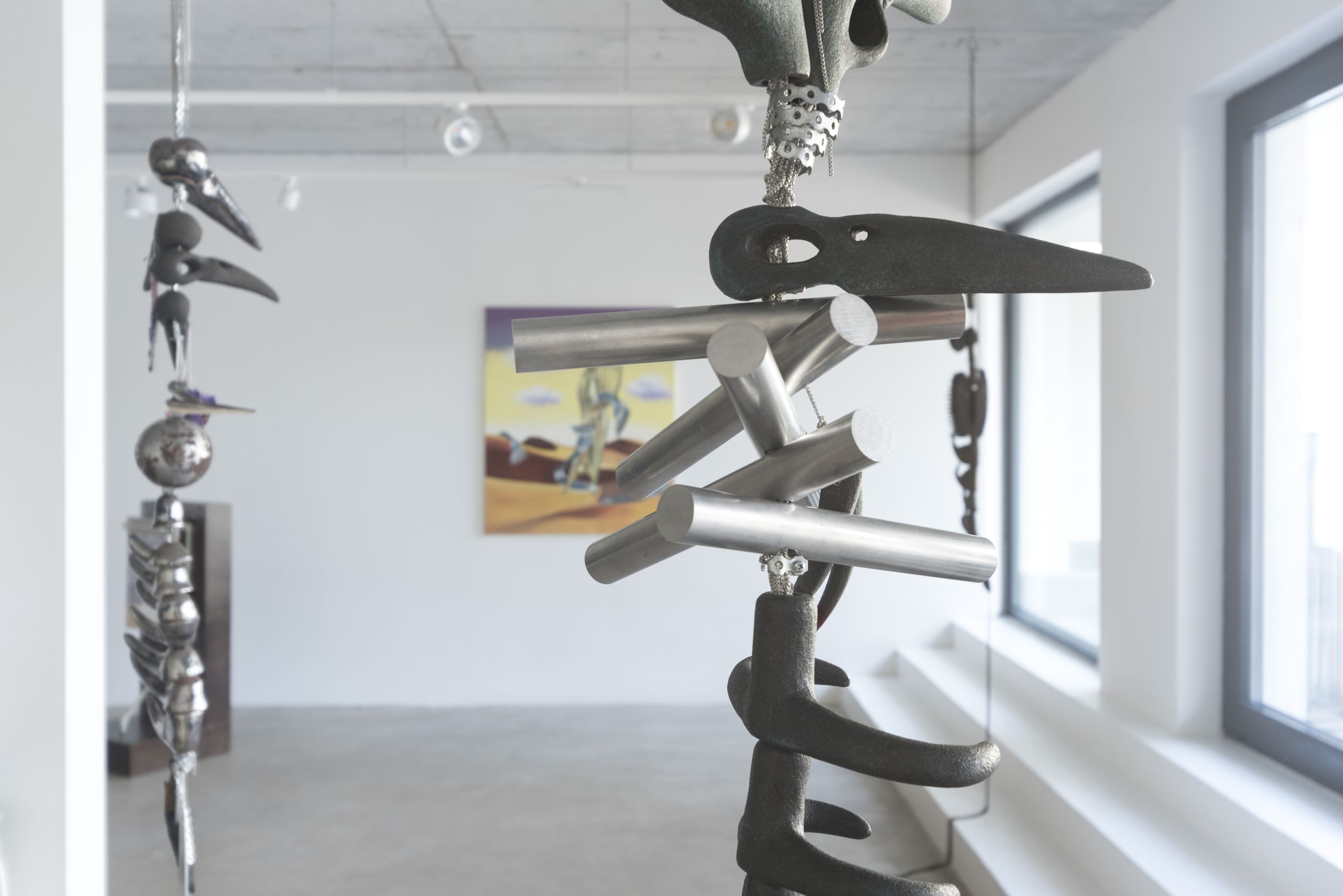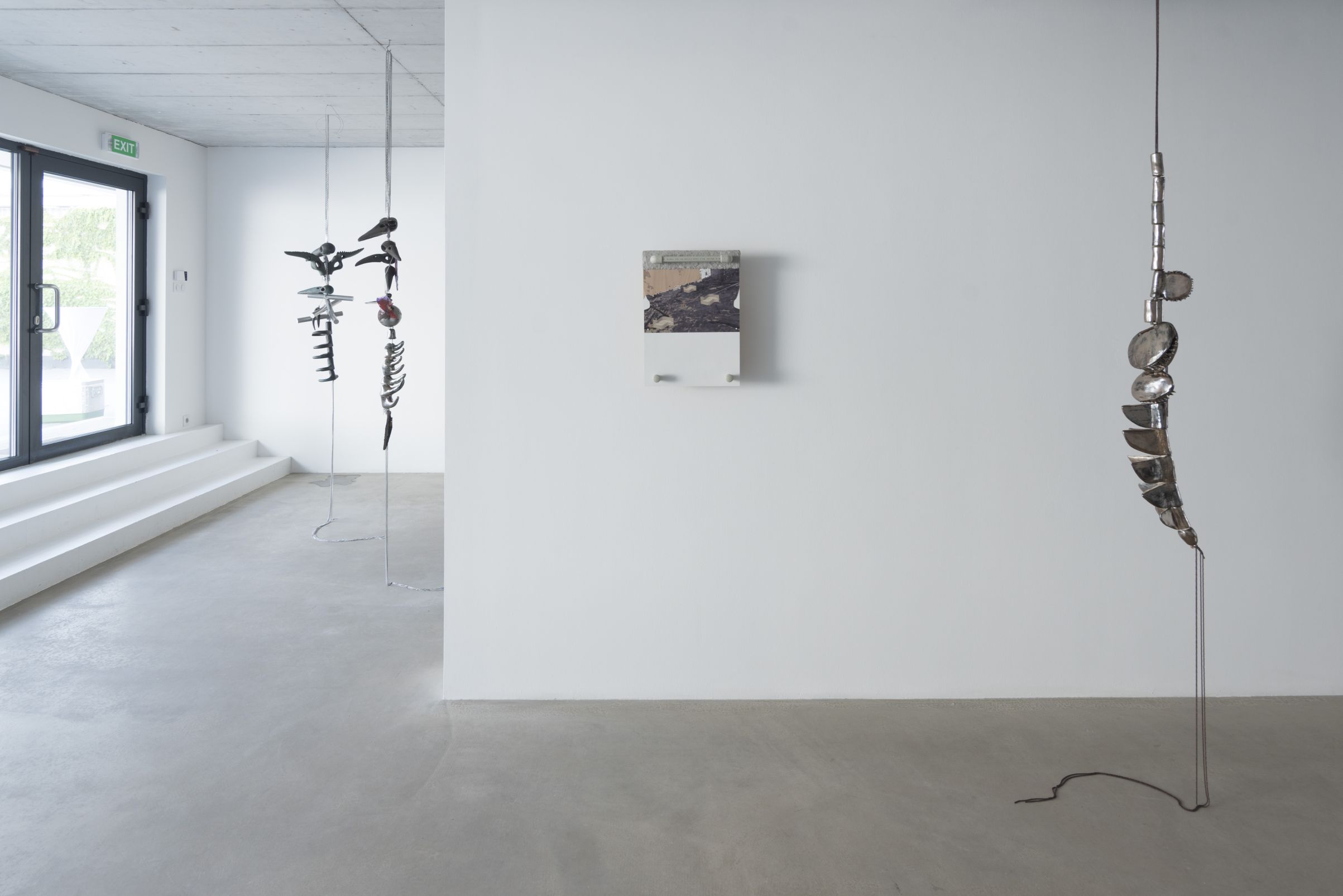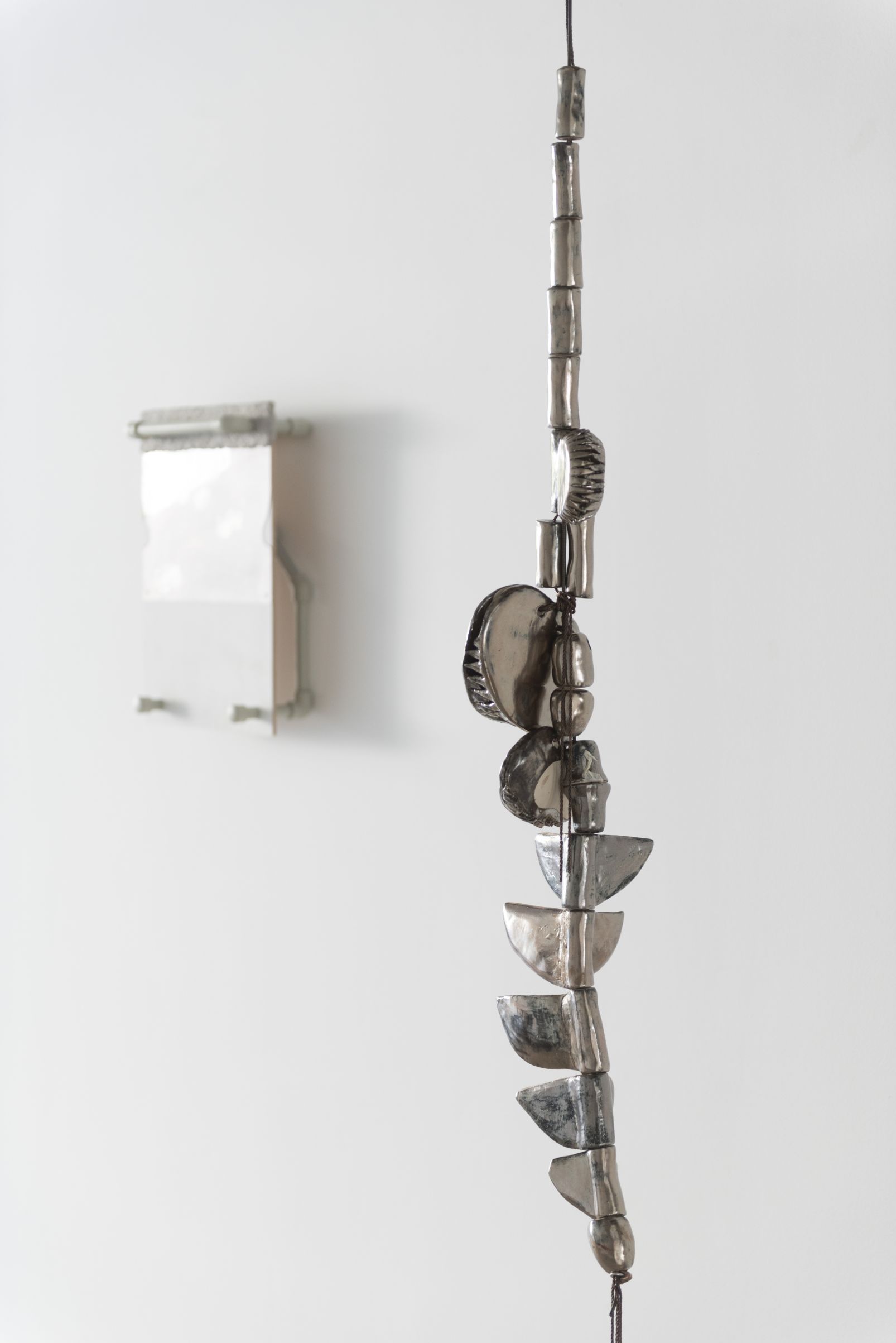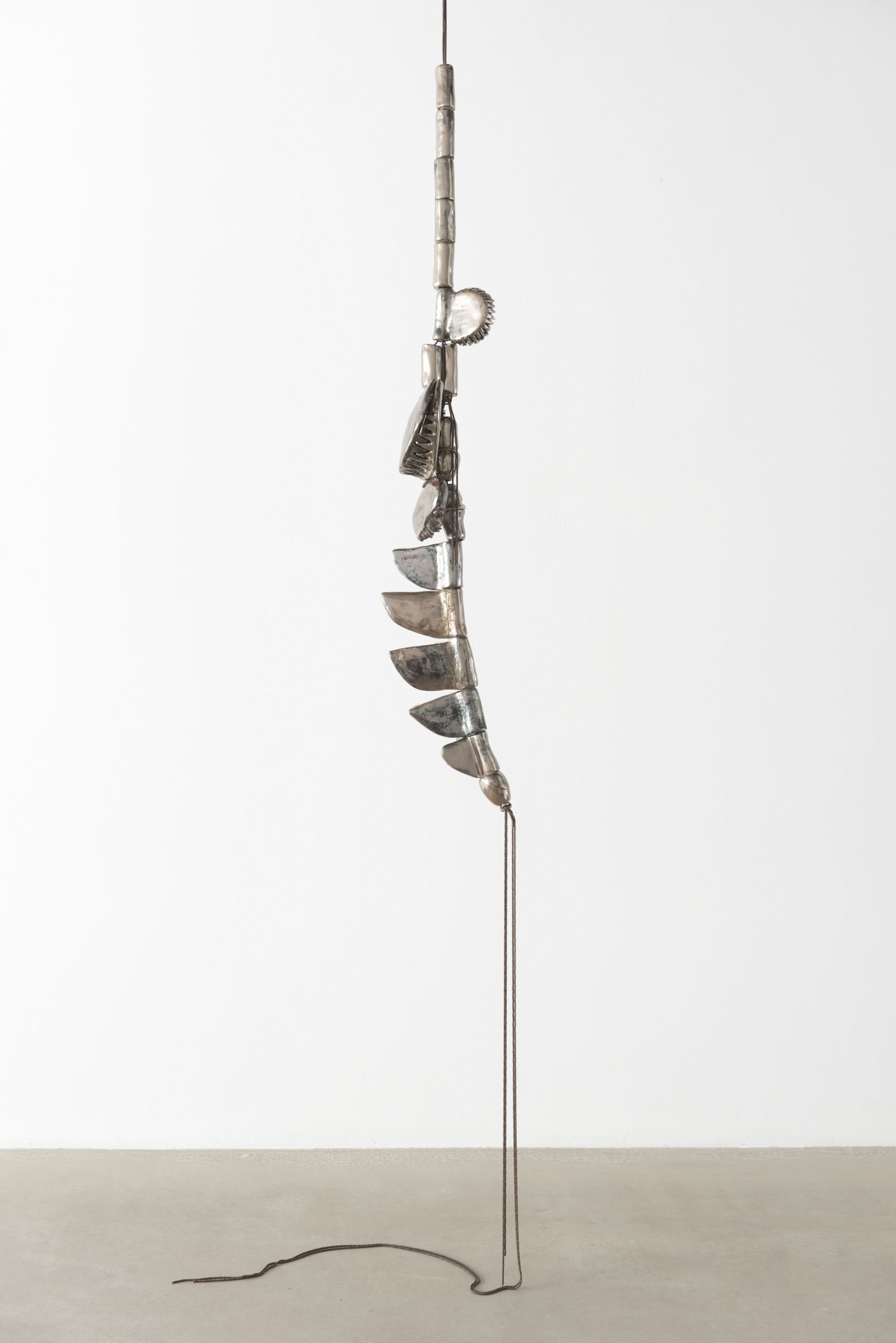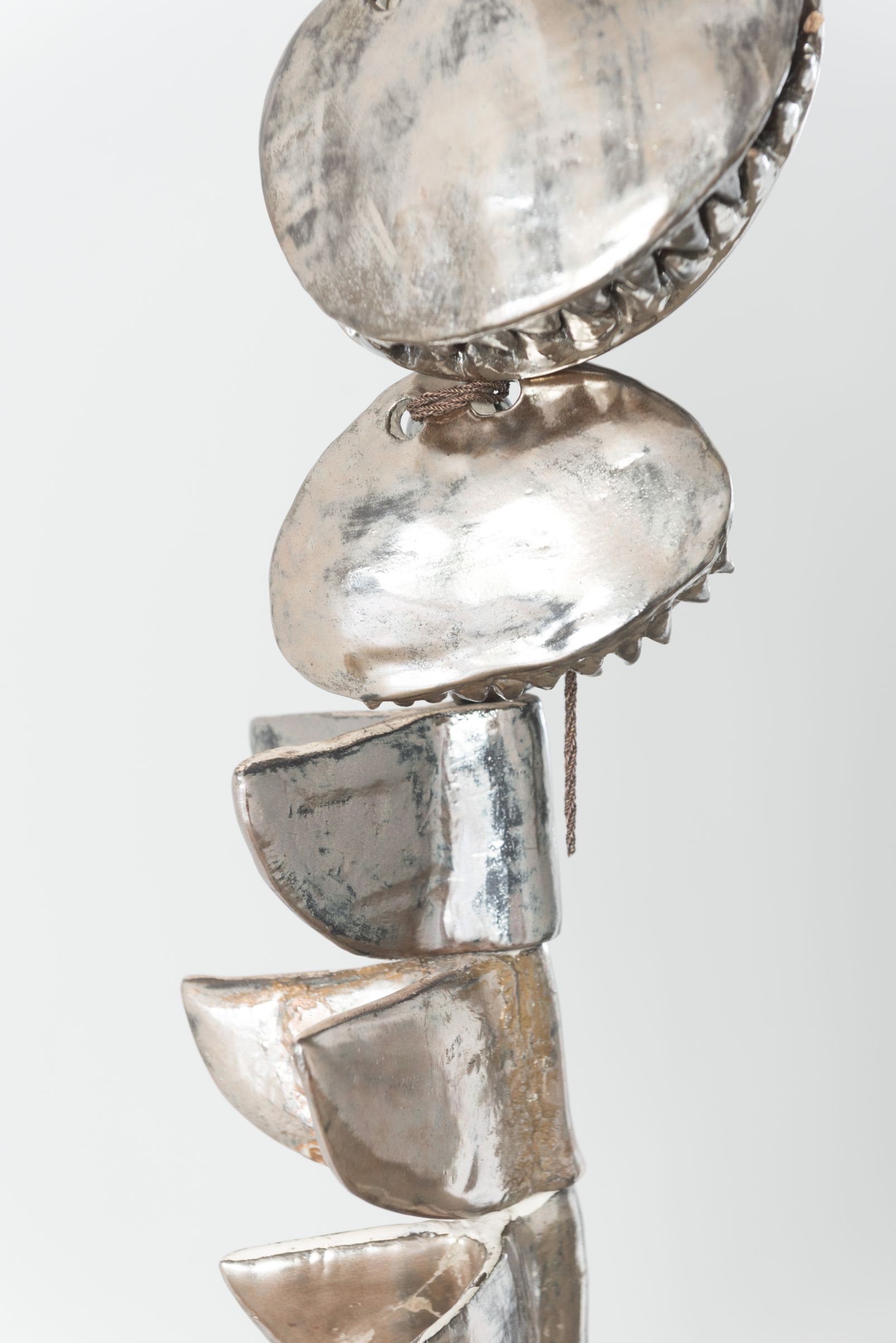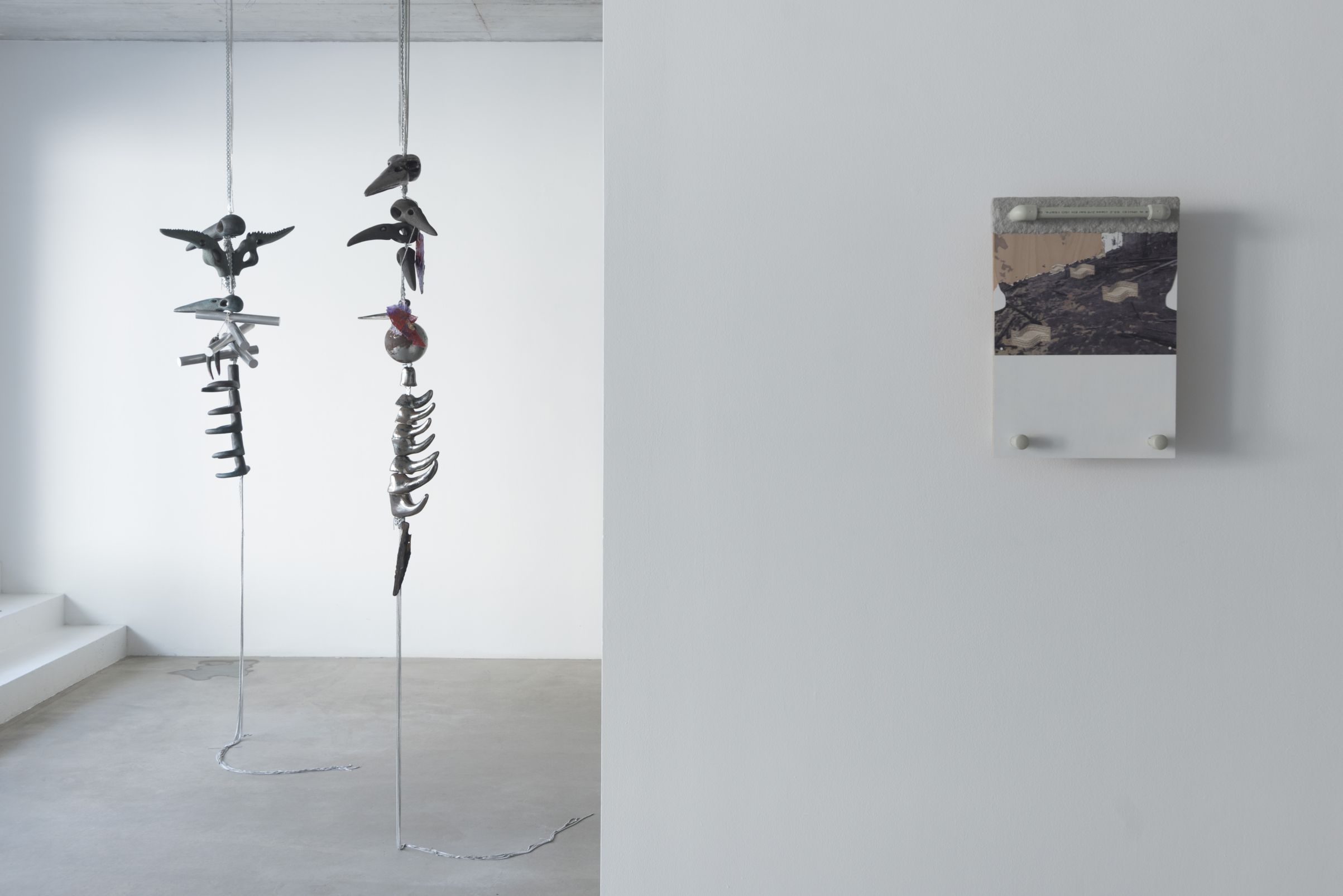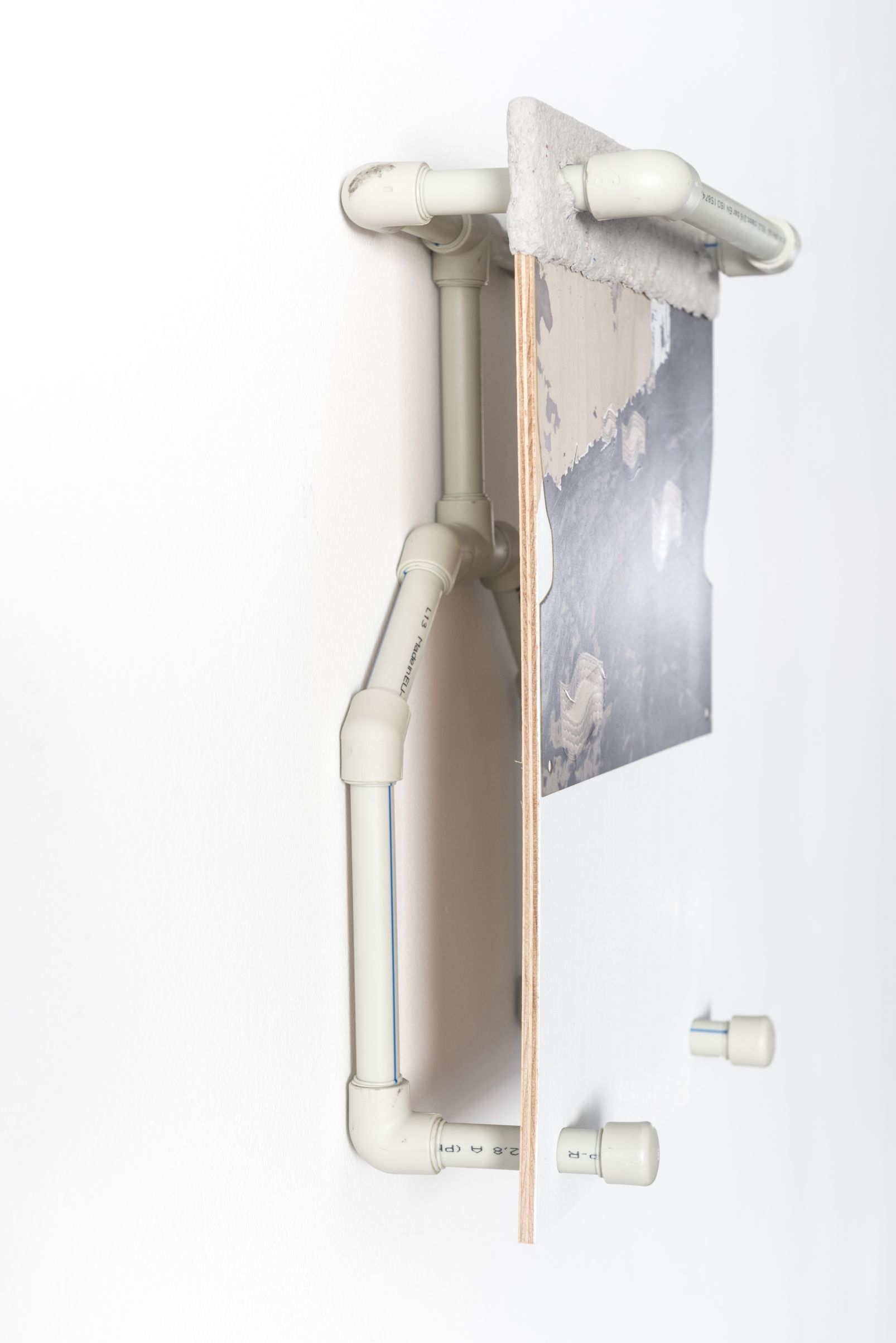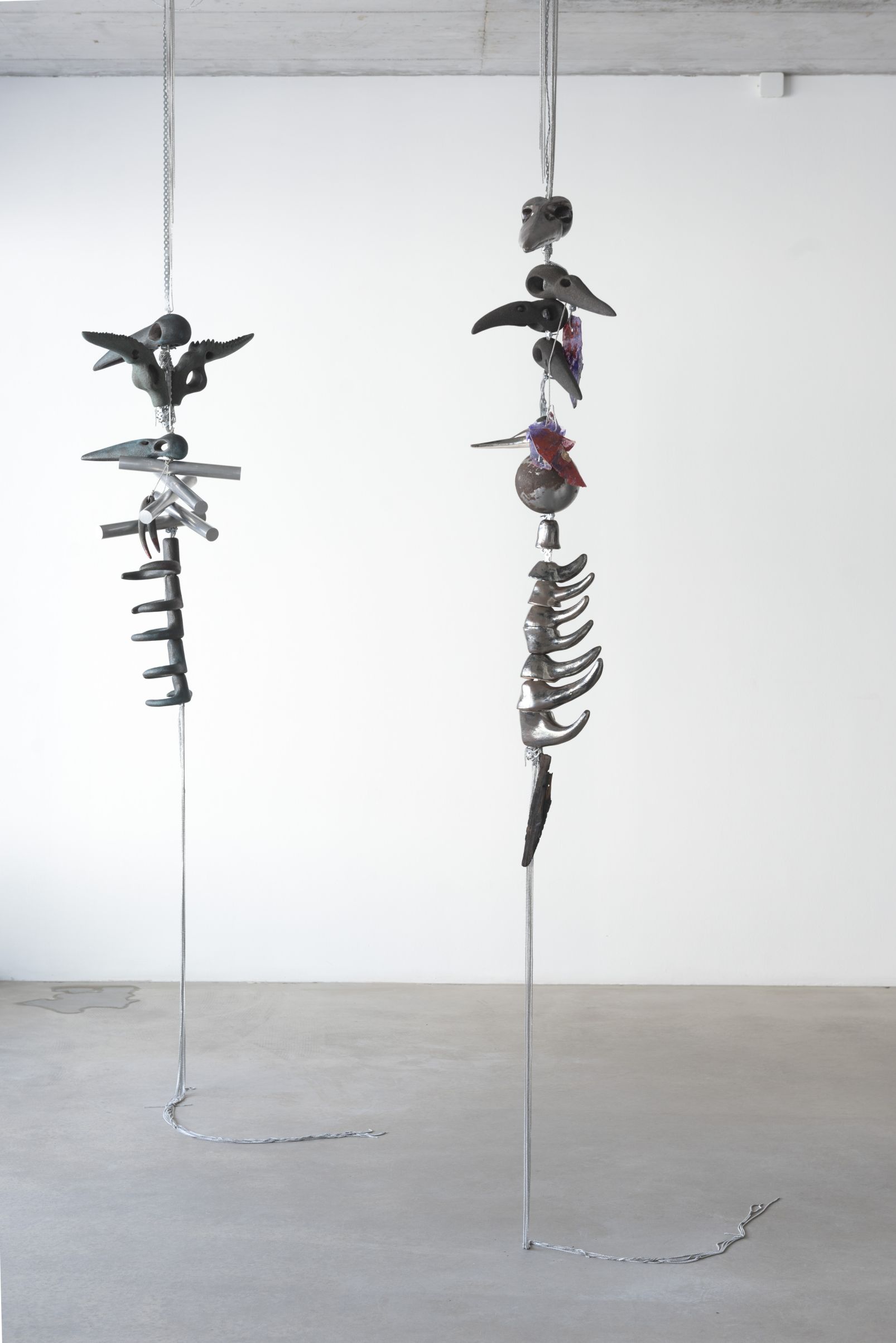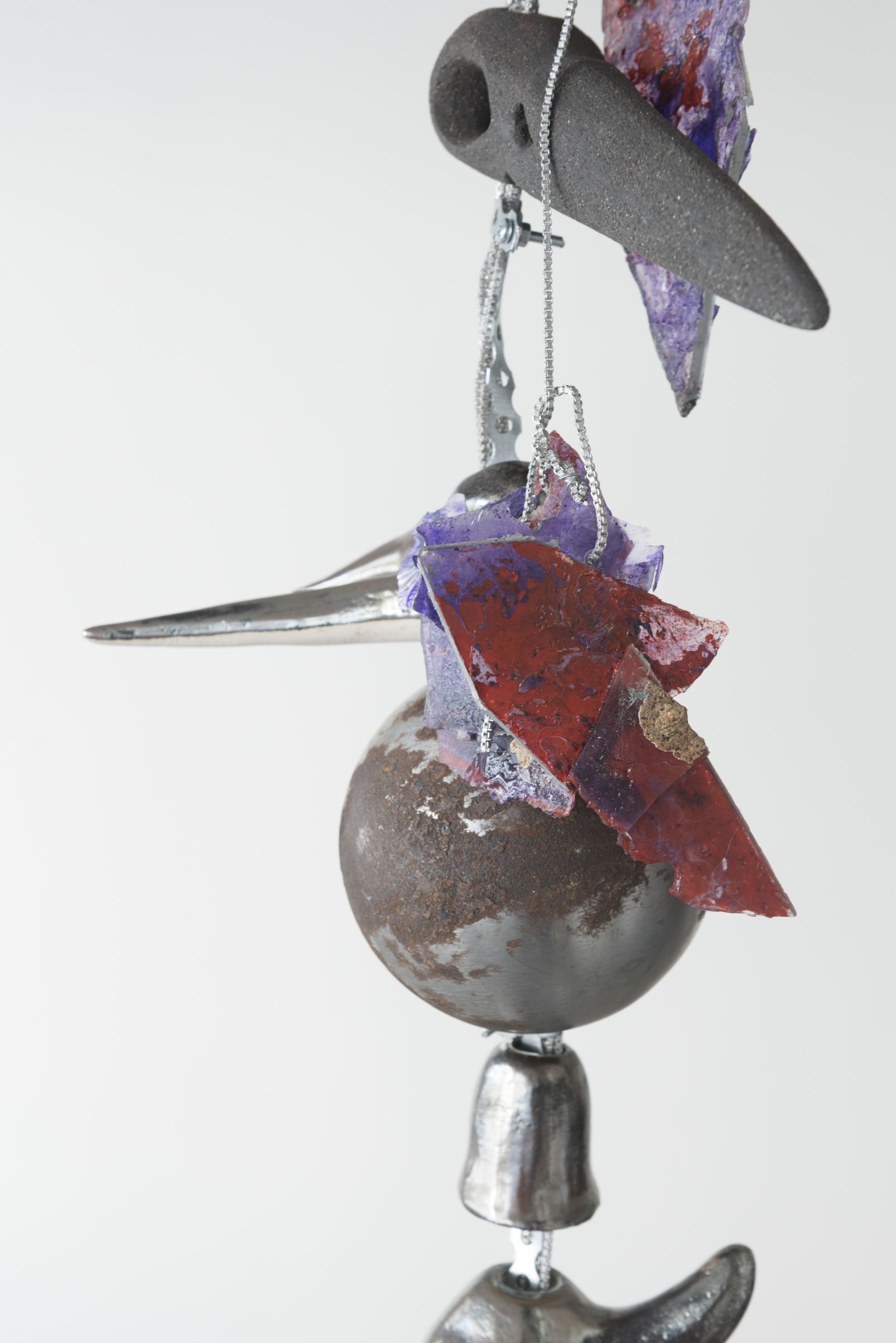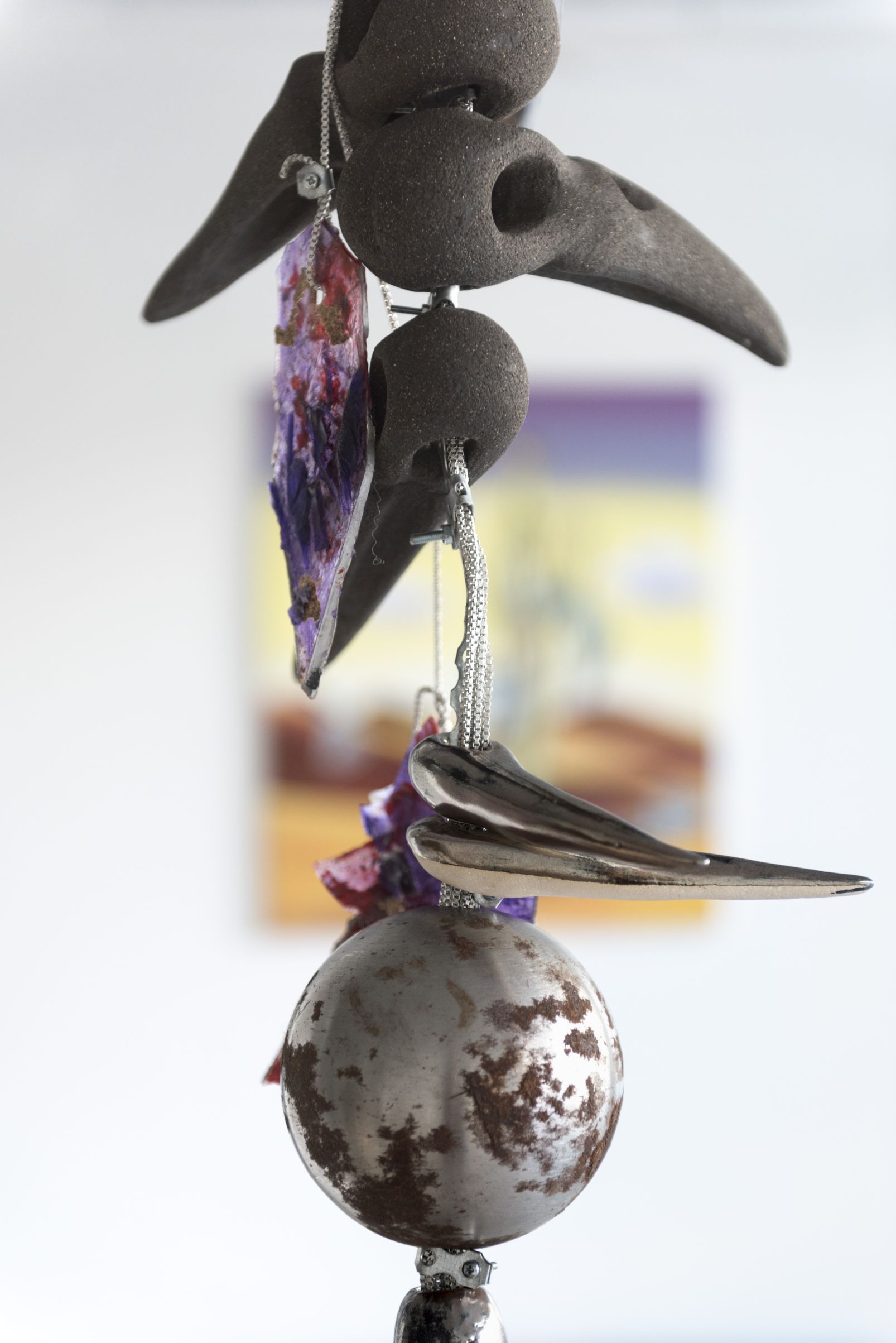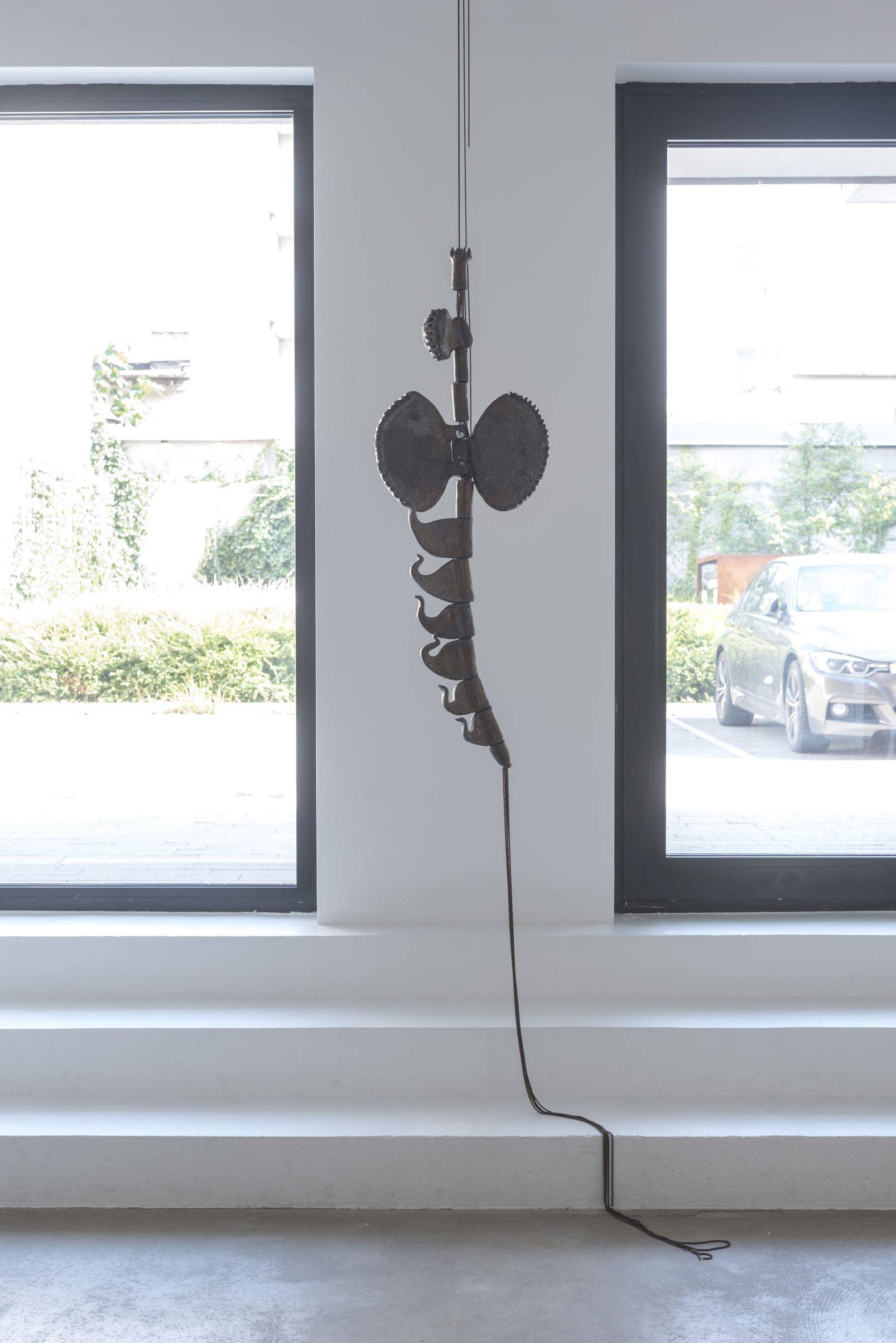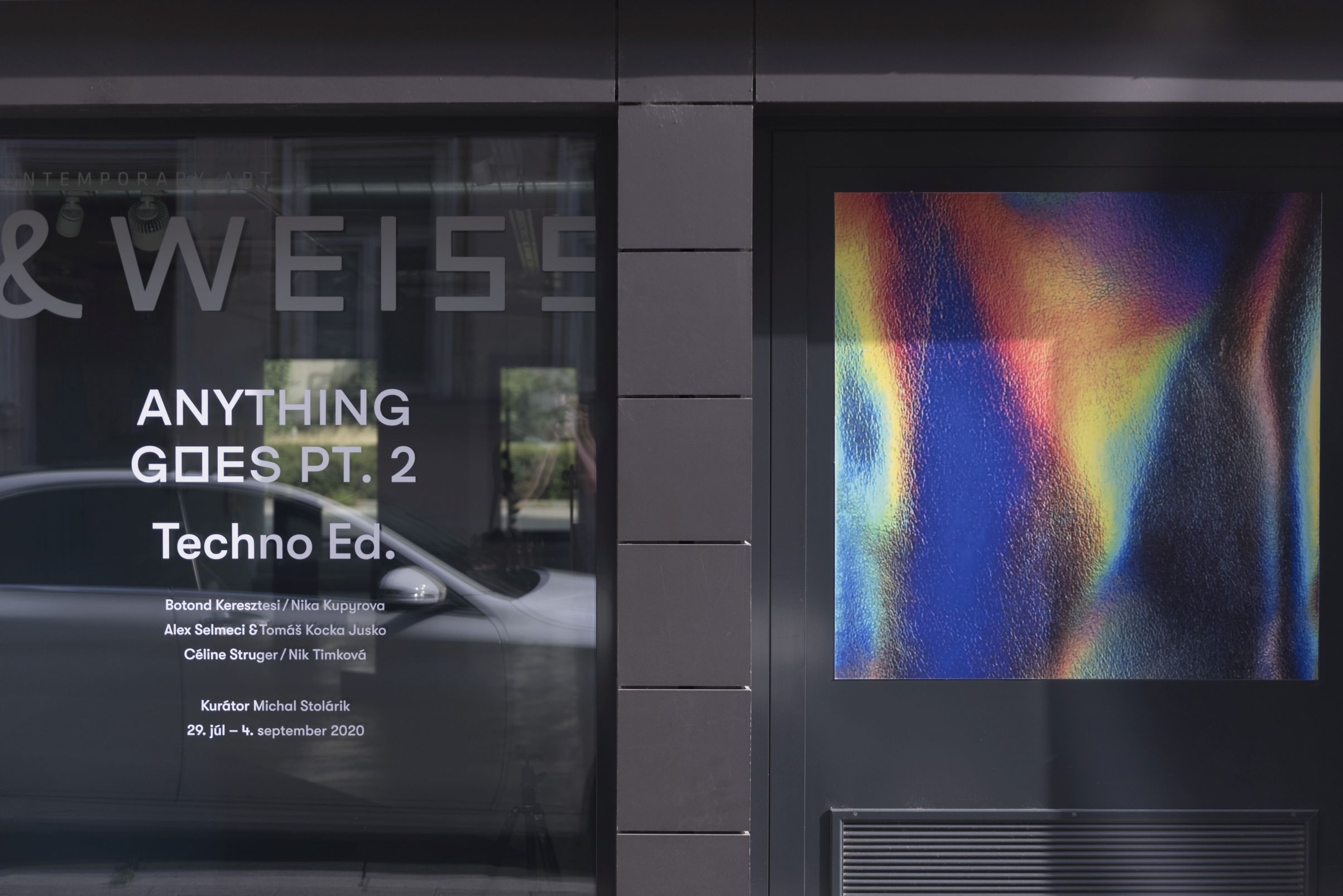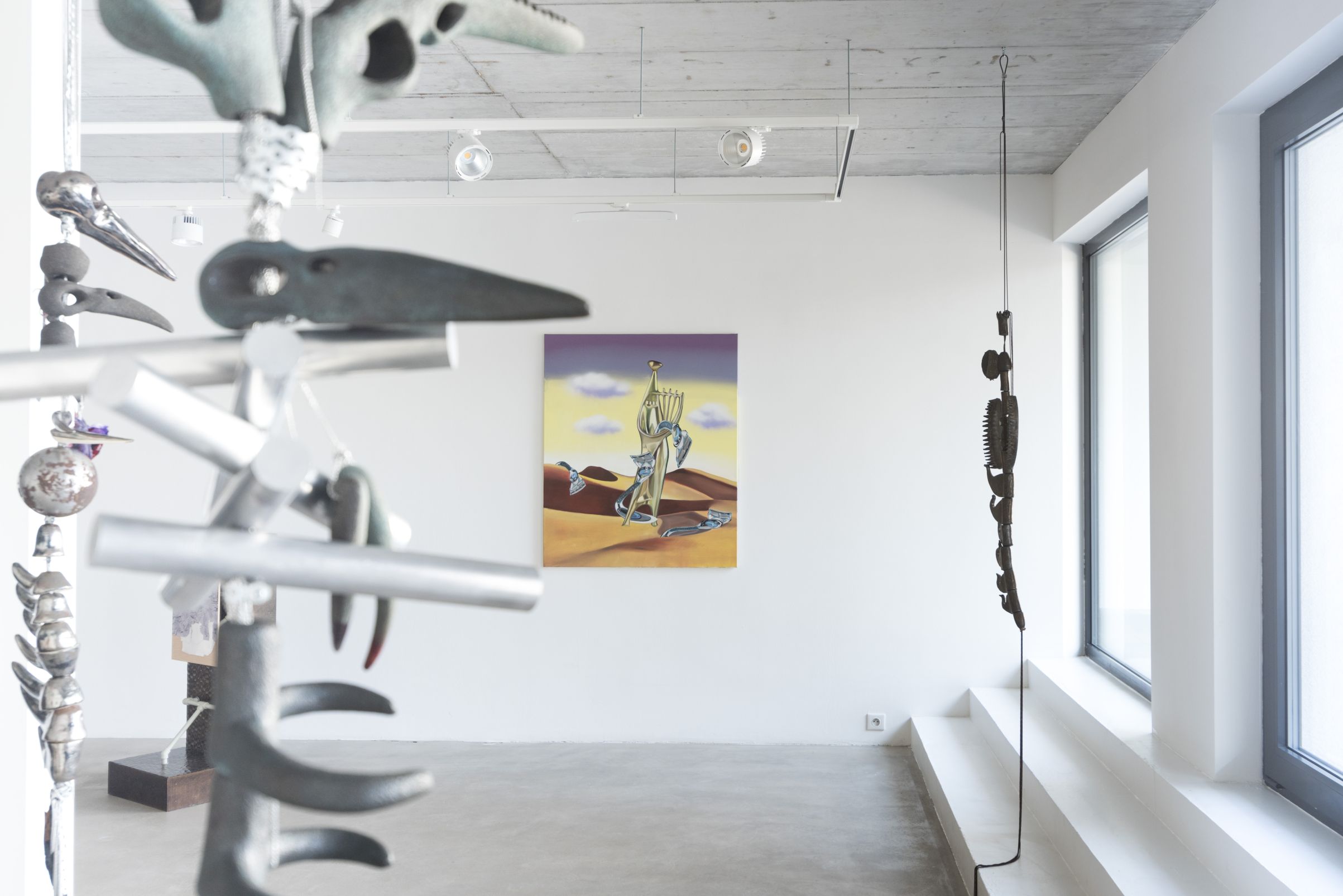Artists: Botond Keresztesi, Nika Kupyrova, Alex Selmeci & Tomáš Kocka Jusko, Céline Struger, Nik Timková
Title: Anything Goes pt. 2.: Techno Ed.
Venue: White & Weiss Gallery, Bratislava
Curator: Michal Stolárik
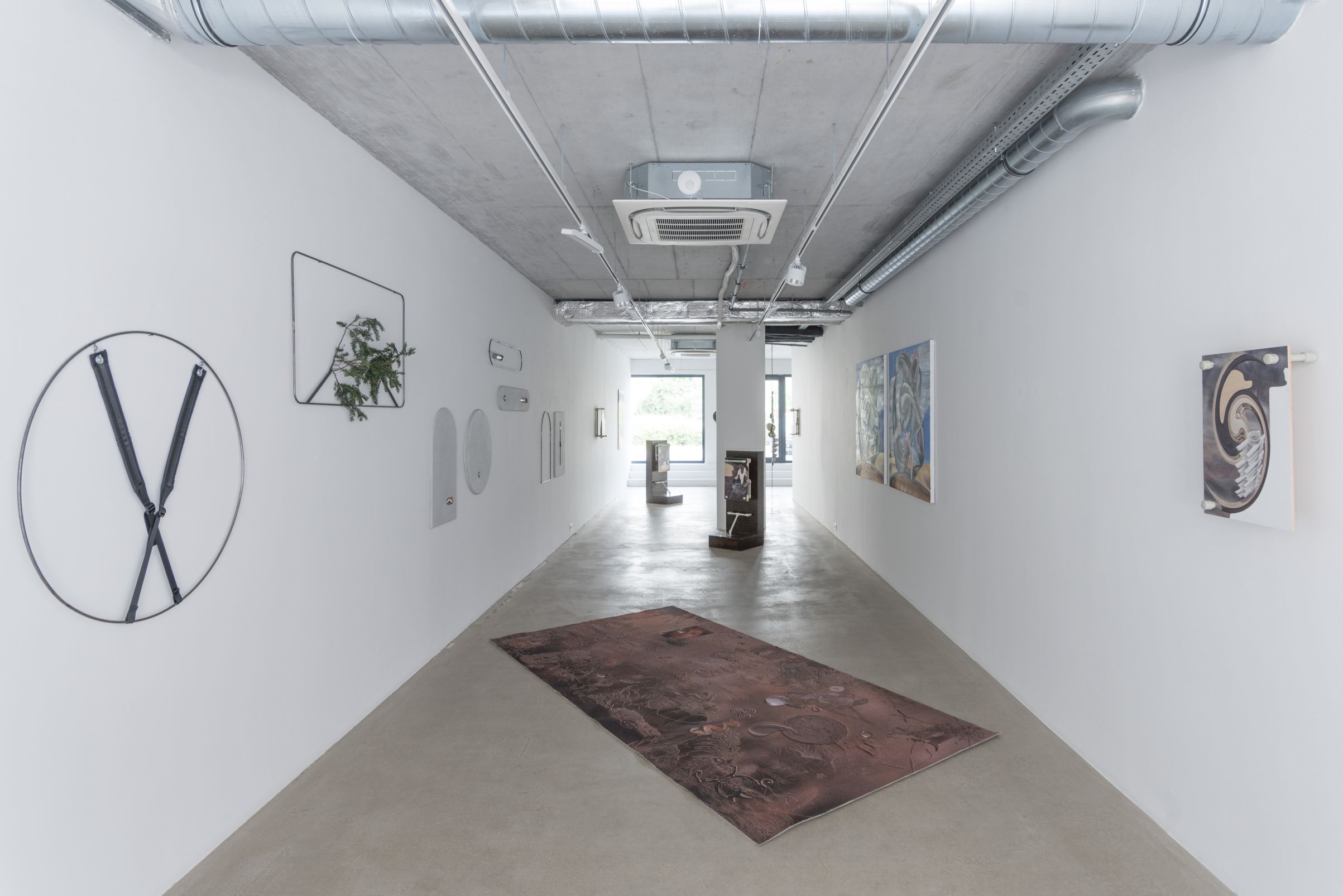
The international exhibition project Anything Goes pt. 2.: Techno ed. is a continuing exploration of current artistic strategies inside Central Europe. The conception targets principles of deformation in form and idea and de(/re)construction with characteristic overlapping of varying visual forms and conceptual sources. For the work of Botond Keresztesi, Nika Kupyrova, Alex Selmeci & Tomáš Kocka Jusko, Céline Struger and Nik Timková, a collage approach is characteristic (not in the sense of the traditional collage medium, but rather using principles of choosing elements from varied contexts and then incorporating them into forms that are new in idea and visual forms), appropriation of strange or found materials, and variability of media.
The exhibition is a free continuation of a curatorial project of the same name, Anything Goes (2019, White & Weiss Gallery, artists: Svetlana Fialová, Pavla Malinová, Nana Mandl, and Titania Seidl), which focused on reconfiguring the essence of painting, drawing and collage. Although sequels rarely anticipate success, the theme of breakdown and the subsequent new putting together of visual and idea forms remains inspiring for further exploration.
The sub-title Techno ed. is a direct response to the context of the current digital world that immediately surrounds us – social networks, blogs, live streams, virtual viewings of expositions, intelligent homes, modern-day influencing, smart phones, artificial intelligence and the technologization of art. The selected artists work in traditional media (painting, object, installation), yet new technologies and echoes of the cold digital space are an integral part of their layered works of ideas. All in one place, there is a natural overlapping of excerpts from popular culture, art history, sci-fi, digitalization, computer games, and personal mythology. Intimate stories are camouflaged in the universal language of contemporary art, and general themes come across as surprisingly personal. High art is a contrast with the targeted use of cheap materials, and the online world blends with the physical.
The Anything Goes pt. 2.: Techno ed. exhibition emphasizes, in addition to related approaches to working, a powerfully dystopian and post-apocalyptic atmosphere stretching throughout the gallery environment. Accelerating feelings of aloneness, anxiety, questions of surviving, environmental sustainability, alternative approaches to life and the future of humanity – all this, in regard to current socio-political occurrences and events in the post-Corona world, is growing markedly stronger. Indeed, it seems that truly anything goes.
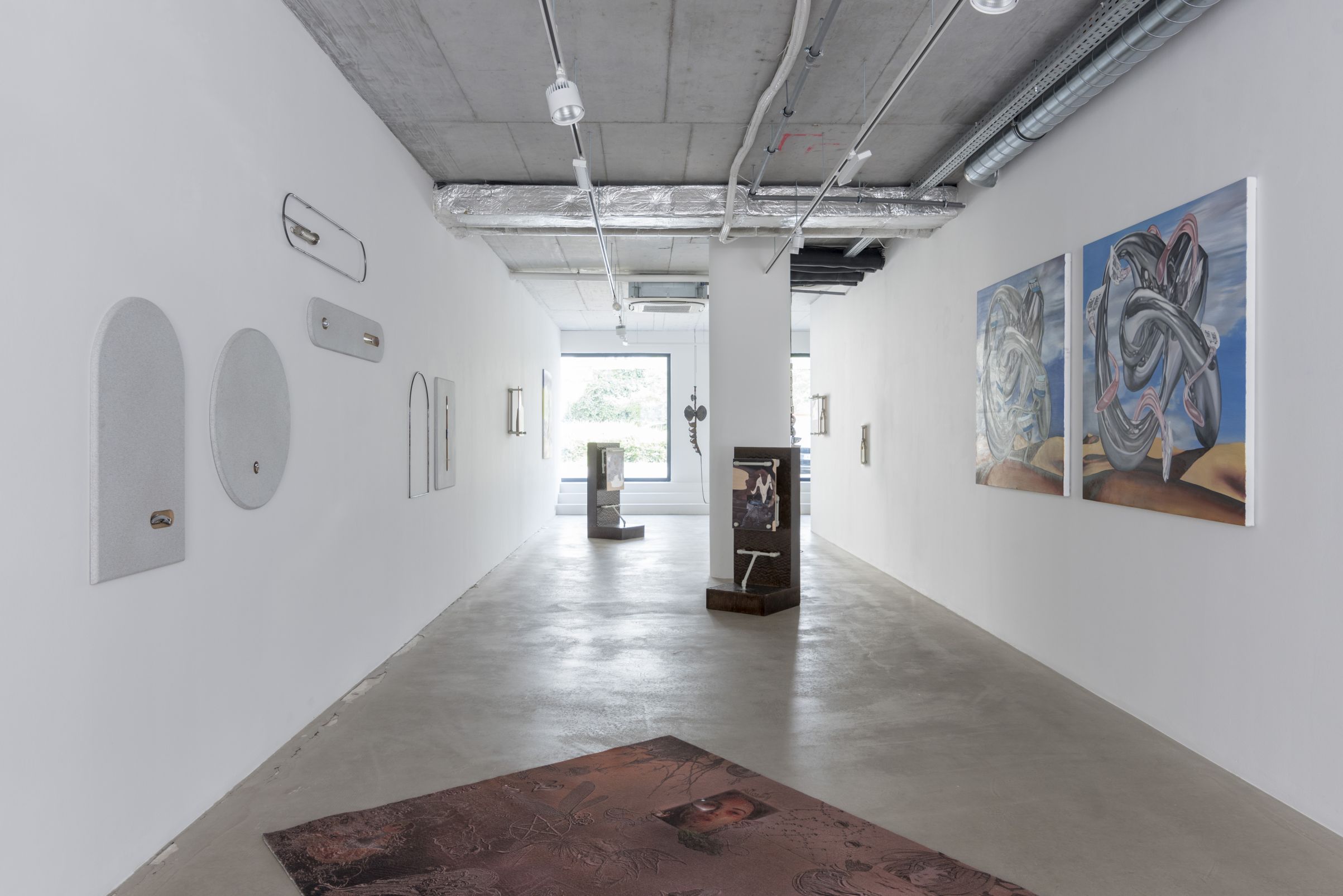
Botond Keresztesi
Surveying surrealistic landscapes by Botond Keresztesi discloses an absurd alternative reality, full of illogical relationships, symbols, and the tremor of subconscious references. The arid, desolate scenery captures melancholic and forlorn sculptures that, in thepost-Corona world, affect us even more urgently than ever before. A heap of spilled razors laps around objects like starving cobras stalking prey. (It is likewise an instant flashback to the 1990s, and the heaps of advertising for men’s razors.) Lightly psychedelic scenes show us the artist’s fascination with various materials and their formal quality, the decay of physical laws and irrational relations between dream and reality. Airbrush painting together with classical brushstrokes give traditional painting composition an untraditional combination of forms and objects. In his work, Keresztesi actively combines an array of references, in visuals and ideas, to popular culture, with intense interest in art history and the digital environment. Mystic scenes mirror the visuality of the current young generation while also doing homage to the European avant-gardes.
Botond Keresztesi (b. 1987) was born in the Romanian town of Târgu Mureș, and has long lived and worked in Budapest. His primary work is in traditional painting, with occasional interventions in spatial objects and site-specific works. Characteristic of his work is a combination of disparate popular and historical references, which he composes into surrealistic compositions. He studied at Budapest’s Magyar Képzőművészeti Egyetem (2012). He received the Derkovist Gyula stipend, 2016 – 2018. He has had solo exhibitions in Future Gallery (2020, 2018, Berlin), Trápez Gallery (2019, Budapest), Galerie Deroullion (2019, Paris), Schimmel Projects (2018, Dresden), ENA viewing space (2017, Budapest), VUNU Gallery (2019, Košice) and others. His works have been part of group exhibitions in the galleries The Hole (2020, New York), Litost Gallery (2019, Prague), the Hungarian National Gallery (2018, Budapest) and Műcsarnoku (2017, Budapest).
Nika Kupyrova
“Roses are red,
Gaming is fun,
‘You are carrying too much to be able to run’.”
– The Internet
The extensive spatial installation by Nika Kupyrova – Adventure, fantasy, mystery, action (2018–2020) – draws on a fantasy in which a heroic loner sets out on a tormenting journey through a post-apocalyptic land. By tenacious efforts she finds and collects requisite tools, effective weaponry, and sundry aids to help her progress to her desired goal. The artist discovered her inspiration in the computer gaming environment, transforming it into a variable installation reminiscent of museum relics. The individual suspended works take on a minimalist aesthetic of design objects, and play on the contrast between noble materials and their imitations. She creates prototypes from the digital world in actual use of found material (a fork, a torch, a mini disco ball and so on), placing them in metal constructions and simple “granite” objects. Though their usability and functionality is debatable, with a light dose of irony (recalling the popular fetishization of so-called survival kits) the artist draws attention to current socio-political occurrences in which the theme of surviving and experiencing still seem relevant. The increasing pop-culture fascination with dystopian fiction and utopian stories could also be attributed to the feeling of powerlessness and the problems our current society is facing.
Nika Kupyrova (b. 1985) was born in Kyiv, and lives and works in Vienna. As a post-conceptual artist, she works with creating objects and spatial installations, employing a narrative in text and visuals. She uses the symbolism in materials, recontextualizes found objects, appropriates visual and textual works, and takes inspiration from history and popular culture. Her studies took her to the College of Art in Edinburgh (2004 – 2008) and the University of the Arts in Iceland (2007), and she completed her master’s degree in the TransArts – Transdisciplinary Art studio at the University of Applied Arts in Vienna (2013 – 2016). In 2019 she received the START-Award Fine Arts, and in 2017 the Erste Bank ExtraVALUE Award. She has held significant solo exhibitions at Fait Gallery (2018, Brno), Galerie 35m2 (2018, Prague), Wien Museum MUSA (2018) and Das Weisse Haus (2017, Vienna), and participated in group projects in the galleries Ravnikar Gallery (2020, Ljubljana), Belvedere 21 (2019, Vienna), Galerie Raum mit Licht (2018, Vienna), WIELS Contemporary Art Centre (2018, Brussels), NTK (2013, Prague), and others.
Alex Selmeci & Tomáš Kocka Jusko
Thepsychological phenomenon Presque vu described the intense feeling of a few seconds, during which we find ourselves on the verge of figuring out some situation, more or less concrete. But having something “on the tip of the tongue” seldom leads to a true breakthrough, usually ending in frustration from a failed ending.
The objects, spatial installations and digital prints of the artistic duo Alex Selmeci & Tomáš Kocka Jusko (fka Edgar & Ota) give an impression of faintly familiar visual perceptions that we are ultimately unable to decipher completely – as if we teleported several hundred years into the future and observed the dystopian remains of the current age’s visual signs. It is a mix of known prefabrications utilized illogically, DIY of a hand-made character, of calming earthy tones and a certain hi-tech nostalgia for the 1990s. The object series Another user invited (2019) comprises little extracts from various earlier environments and installations. Built of material layering and deformed remains of purchases at project hobby markets, it approaches an intensive poeticization of technology’s material essence. The works employ the assemblage technique, in which the two artists combine natural, artificial, and imitative materials.
Alex Selmeci (b. 1994) and Tomáš Kocka Jusko (b. 1994) were born in Rožňava and Košice, and now live and work in Prague. They work with objects and spatial installations; what interests them is variability and recycling of materials and the use of technology outside the technological world. In their complex environments, they interweave history with the future and present. They completed studies in the Studio of Contemporary Painting, Department of Fine Art and Intermedia, Faculty of Arts of the Technical University of Košice (2017/2018). Currently, they are continuing studies at the Studio of Intermedia Work II of the Academy of Fine Arts in Prague. They have participated in several solo and group exhibitions in such galleries as East Slovak Gallery (2020, Košice), Berlinskej model (2020, Prague), Galerie Panel (2019, Prague), Temporary Parapet (2019, Bratislava), HotDock Project Space (2019, Bratislava), GAVU (2019, Cheb) and VUNU Gallery (2018, Košice).
Céline Struger
The modular sculptures and objects of Céline Struger, hung from the ceiling, evoke the atmosphere of a dystopian land in which we gradually discover and uncover the remains of past cultures. Layered segments, finds, or imaginary scalps symbolizing the accretion of time and scraps of ancient history are lashed boldly to conventions drawn from mythology and various forms of religion. We see a range of organic or artificial materials, remainders of skeletons, strips of skin, and rusty chains running to the floor – some kind of new stalactites or shamanic relics. The natural formal side of the work, never unnecessarily dressed up, takes inspiration from the growth of bones and exuberance of vegetation, while also drawing attention to the issue of sustainability and the impact of waste on the environment. The original vertical installations comprise small hand-made sculptures and objects Struger makes from ceramics, precious metals and found materials. Her inclination for the materiality of the objects is akin to the thinking of the avant-garde Arte Povera movement, which in the 1960s and 70s in Italy did tribute to an anti-institutional form, and used, cheap, or ephemeral material.
Céline Struger (b. 1982) was born in Klagenfurt, Austria, and currently lives and works in Vienna. She does sculptures and spatial installations characterized by combining various materials and a tendency to the formal and organic. She enjoys working with space and responding to the specifics in an environment. She studied at the TransArts – Transdisciplinary Art studio at the University of Applied Arts in Vienna (2011 – 2016), during which she participated in a study visit at Gerrit Rietveld Academie in Amsterdam. In 2016 she received the Emerging artist Award (Province of Carinthia). She has exhibited solo in the survey PARALLEL Vienna (2019) and in the galleries K.A.S. Galéria Budapest (2018), Gachang Art Space (2018, South Korea), Kunstverein Kärtnen (2018, Klagenfurt) and Percipi Gallery (2014, Amsterdam). Her works have been part of group exhibitions in the galleries Kunstraum PFERD (2019, Vienna), MODEM (2019, Debrecén), Gallery Céline (2018, Glasgow), Kunstquartier Bethanien (2018, Berlin) and others. Her work is represented in the collections of Castle Plueschow, Magyar Nemzeti Múzeum, and the city collections of Villach and Vienna.
Nik Timková
The Nik Timková work Sit in my heart and smile (2020) breathes the aura of a magical place, pulling us in through a strange sense of the unknown. The atmosphere of the minimalistic environment, with its minute details, provokes curiosity and invites interaction. The created “safe space” encourages one to stop and experience an imaginary DIY in the ritual environment. You walk through it, sit on it, examine the minutiae, awaken, and stop in it here and now. Inhale. The monumental red surface may put you off, but don’t worry, there’s nothing to fear. Exhale.
Most of this spatial installation, set on the gallery floor, comprises a textile carpet printed with a digital collage. The artist’s original technique, which Timková actively developed over years, brings together a variety of pictorial materials arising in the digital world’s environment. She interlinks these online references, often emotionally unstained, with nature, traditions, neo-pagan customs, and a natural approach to working (and living). The artist puts together and explores the meanings of sacred and worldly motifs in combination with objects from various groupings, materials, and idea content (liquid materials, “tasteless” graphic words from internet forums, and work with the emptied aesthetic of photobank images).
Nik Timková (b. 1986) was born in Košice, and is now based in Prague. Her multimedia work combines work with fashion textiles, drawing, and hand-made and digital collage. She creates spatial installations and small objects, which she organizes into subtle environments. She reflects on current visual trends, appropriating generally available visual sources, which she conjoins with her own mythology, woven with the iconography of witchcraft and pop culture reference. She completed bachelor’s studies at the Studio of New media, Faculty of Arts of the Technical University of Košice (2010). She studied for a few semesters at art schools in Krakow (2009) and the Academy of Performing Arts in Prague (2009 – 2010), and completed her master’s study at Central Saint Martins College of Arts and Design in London (2011). At present she works as an assistant at the Studio of Painting III of the Academy of Fine Arts in Prague. In 2017 she was a recipient of the Oskár Čepan Award. She has had solo exhibitions at 35m2 (2019, Prague), Polansky Gallery (2017, Prague), and HIT Gallery (2017, Bratislava), and participated in group projects in the galleries FUTURA (2018, Prague), Zahorian & Van Espen (2019, Bratislava), Crum Heaven (2019, Stockholm), Východočeská Galerie (2019, Pardubice) and others. Timková is a member of the Prague group A.M.180. and BJÖRNSONOVA platform.
Michal Stolárik
